Listening to the HURT
A new Perth initiative aims to help women overcome the grief no-one warned them about - the silent epidemic of suffering caused by abortion
Page 16



A new Perth initiative aims to help women overcome the grief no-one warned them about - the silent epidemic of suffering caused by abortion
Page 16


Banned on the internet within 24 hours of its release, Pope Benedict’s historic letter to the faithful of China offers a vision for a way forward. What is its significance, and can the Chinese Government live with one Catholic Church?
VISTA 1-3



WOMEN:






Maria students help out Aboriginal communities Page 7
The Southern Cross Bioethics Institute in Adelaide, Australia has exposed the global push for therapeutic cloning and the destruction of human embryos for research as an elaborate cover-up by the IVF industry for other motives.
Fr John Fleming, adjunct lecturer at the Southern Cross Bioethics Institute, said he has never believed that stem cell research was the real agenda for embryonic research.
“If you look at the literature – and we’ve done plenty of research – the vast amount of reasons why embryos are used in experimentation have nothing to do with stem cells but everything to do with in vitro fertilisation, the testing of certain toxic products on embryos, the development of new contraceptives and so on,” said Fr Fleming.
Fr Fleming speaks with the authority of one who has been a member of the Biotechnology Consultative Group advising the Commonwealth Biotechnology Ministerial Council and UNESCO’s (United Nations Educational, Scientific and Cultural Organisation) International Bioethics Committee that developed the “Universal Declaration on the Human Genome and Human Rights”.
He was also a delegate to the Australian Constitutional Convention in 1998.
“The stem cell debate was very appealing – ‘we’re going to be able to cure everything the universe has ever known about disease’ – not,” he said. “That was the beach-head to break open the question of embryo research
Continued - Page 2

Deacon
the occasion was a joyous one.

The Catholic Diocese of the Australian Defence Force will be shut down if up to 20 priests can’t be found to minister to the country’s servicemen and women, according to its Bishop Max Davis. Bishop Davis, who took possession of the See in 2003, said the ADF requires 22 full-time Catholic chaplains for the army and has only three – only one of whom is young enough to be deployed.
The other two are too senior, and one of whom has been in the army long enough to be a full Colonel in terms of his insignia, “and when you’ve got the commanding officer of a unit as a Lieutenant-Colonel, he doesn’t like to be outranked by the chaplain, and that makes life difficult for him,” the Bishop said. By the end of 2007 there will be only 10 full-time chaplains in the ADF against 34 established billets. Bishop Davis says Australia has 3000 soldiers deployed around
Continued - Page 7

After reaching over 1 million dollars in donations to Project Compassion, Western Australia was congratulated by Caritas Australia’s new community engagement manager, Liz Stone at Perth’s Catholic Pastoral Centre on July 2.
In congratulating the Caritas WA’s volunteers and contributors Ms Stone, who is based at the national office in Sydney, said the generosity of Western Australians to the poor of the world was a huge contribution to the record breaking national total of 8.9 million dollars.
Ms Stone began her work in aid assistance while living in Ethiopia, where she worked for the National Association of Churches and NGOs as a communications officer from 1990 to 1994.
In an attempt to live in Australia, Ms Stone then managed the international development consultancies of Macquarie University for over five years.
Most recently, Ms Stone spent two years based at the Caritas Internationalis general secretariat in Rome assisting in the implementation of the Caritas post-tsunami programs.
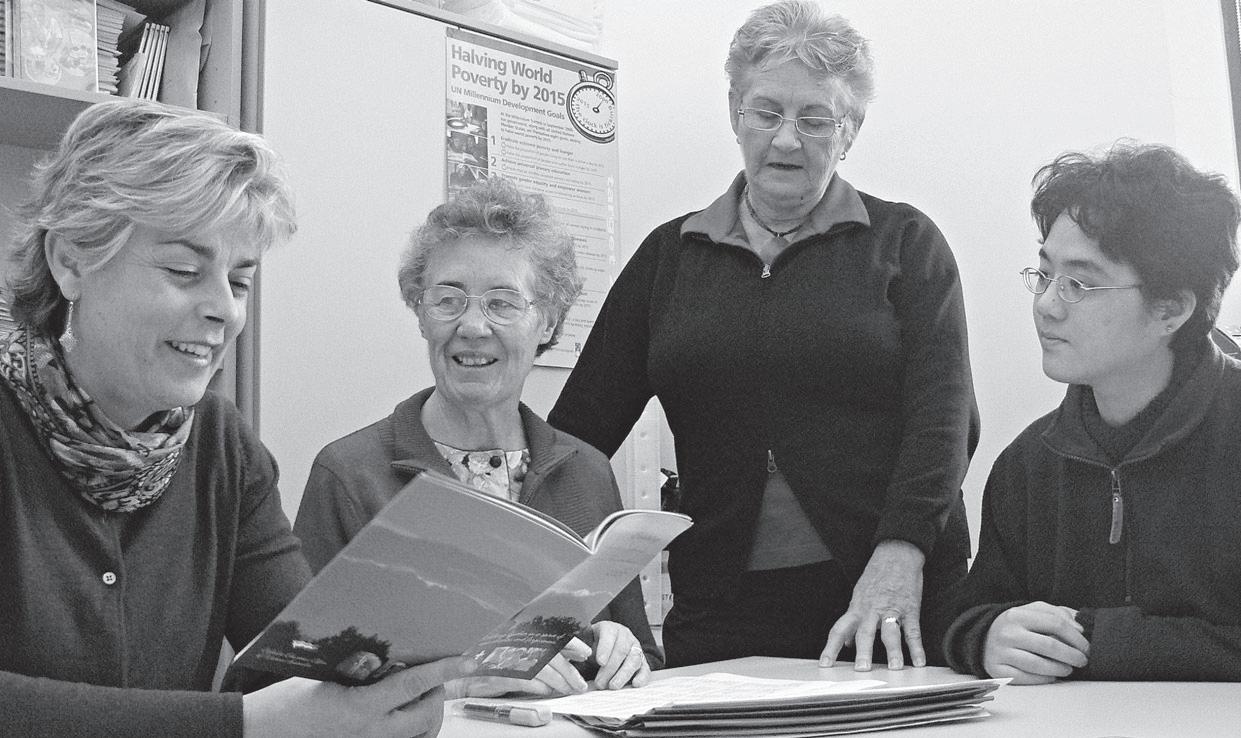
As the new community engagement manager, Ms Stone said one of her greatest priorities was to forge greater links with religious, health professionals and those within school systems.
“Our team addresses poverty crisis, by raising awareness and engaging the local Church to carry
...areyoucalledtotheBenedictinelifeofdivine praiseandeucharisticprayerfortheChurch?
Contact the:
www.tyburnconvent.org.uk
out their mission in assisting all in the universal Church,” she said.
Ms Stone said this would essentially be done through effective communications and media publication, adult education and fundraising.
Praising once again the efforts of those who contributed to this
year’s Project Compassion, Ms Stone reminded those present that even still, the national total of over eight million was only half of the funds necessary to implement next year’s projects.
“Eight million seems like a lot of money, but the need is greater still,” she said.
Continued from Page 1
generally.” During the 2002 Federal Parliament debate that ended up allowing the destruction of human embryos for research, the Southern Cross Bioethics Institute distributed to every federal Member of Parliament a booklet they published for that specific legislation.
The booklet, written by Fr Fleming, Dr Greg Pike and research officer Selena Ewing, set out overwhelming evidence that IVF scientists are concerned that IVF children, when they grow into their 50s and 60s, will be at greater risk of certain metabolic disorders. These metabolic disorders occur on the basis of ‘nutritional stress’.
“We know, for example, that a child - whether it’s the result of an imperfect connection between the child’s placenta and the mother - is more susceptible to certain metabolic disorders like diabetes and obesity than others,” Fr Fleming said,


“Their (IVF scientists) concern is that having nurtured an embryo in an environment that is not the same as a human environment (the womb), these
embryos will have been subject to nutritional stress.
“(They are also concerned) that at the end of the day they may well be open or liable to the possibility of at least some legal action through failure of duty of care if they don’t do something about it now.”
“IVF is a very imperfect system.”
Fr Fleming added that he doubts embryos will be needed now for research into potential cures anyway due to advancements in stem cell technology from amniotic fluid, placentas from full-term pregnancies and last month’s breakthrough that showed normal skin cells can be reprogrammed to an embryonic state in mice – a technology that can easily be applied to human cells.
After a rare conscience vote approved the cloning of human embryos for medical research by 20 votes, changes to federal legislation governing the use of human embryos in research came into effect on June 12, 2007.
The Senate in Federal Parliament passed legislation allowing the destruction of human embryos on December 5, 2002.
Since then, the National Health and Medical Research Council’s Licensing Committee has issued nine licences to work with embryos that are excess from the IVF process.
Dr Pike, who succeeded Fr Fleming as Southern Cross Bioethics Institute director, said that of those nine, only four deal with stem cell research.
He said 70 per cent of the embryos used in these nine licence applications have been earmarked for use in training clinicians in IVF, research into the development of better growing conditions for embryos used in IVF technology and studies on genetic testing in embryos.
“This evidence shows that researchers are clearly more interested in non-stem cell applications than stem cell applications,” Dr Pike said.
The Human Reproductive Technology Bill currently before West Australian Parliament retains the ban on human cloning for reproductive purposes but allows for the creation of embryos by means “other than fertilisation and the use of those embryos for research”.
She said some of the projects planned for next year would focus on those displaced from the recent violence in Dilli, East Timor, where 2/3 of the population were still suffering.
“In Papua New Guinea, Caritas Australia is battling a growing AIDS epidemic and continuing to assist those in Gizo, Solomon Islands,” she said.
While assisting our near-by neighbouring countries, Caritas Australia will also continue its work with indigenous communities in rural Australia.
“Problems with youth, health and cultural identity are still very prevalent,” Ms Stone said.
And with the World Youth Day cross and icon making their way across Australia, Ms Stone said WYD ’08 was a large part of the work being done by the team.
“The traveling cross and icon will visit communities where the donations of generous Australians have made a vast difference.
“But we want to do more than that,” she said, adding that programs were being developed to challenge youth, enriched by the worldwide event, to act on the message of WYD.
For further information contact Perth’s Caritas office on: 9422 7925.
Fr Ken Keating has retired from the position of Parish Prist at Our Lady of Grace at North Beach. He has been replaced by Fr Richard Smith who until now has been chaplain at Royal Perth Hospital.
Fr Joseph Lee, of the Cathedral parish, has replaced Fr Smith at RPH and will continue Fr Smith’s schedule of weekday Masses at the hospital chapel.
Following the retirement of Fr Finbar Walsh from Rockingham, Fr Michael Separovich, of St Anthony’s at Wanneroo, has become parish priest at Rockingham.
Fr John Daly has transferred from Goomalling/ Wongan Hills to replace Fr Separovich at Wanneroo. Fr Terence Nueva will care for Goomalling/ Wongan Hills, and Fr Nicholas Nweke has become Parish Priest of Corrigin.
Fr Giovanni Fontana CRS (Somascan) will be Acting Parish Priest at Our Lady of Mt Carmel Parish at Hilton.

Archbishop Barry Hickey ordained Manoel Lopes Borges and Ernesto Cerrutti, from Redemptoris Mater Missionary Seminary to the Diaconate in front of more than 250 people at St Gerard’s Parish Mirrabooka last Friday night.
For Manoel, 41, from Brasilia in Brazil, the call to the priesthood happened in the most unlikely circumstances.
A former Judo teacher, who owned a gymnasium with more than 1200 students was a regular church-goer but thought little about the plan of God or what the Church meant to his life.
In 1995, Manoel joined the Neocatechumenal Way.
Three months later, at the invitation by the catechists for his community, (or people chosen to assist in the direction of his community) Manoel went to a meeting for men from his diocese thinking about becoming a priest.
Having thought of this only a few times at about the age of seven, Manoel went to the meeting not knowing what would happen or what the plan of God was for him.
“I remember having a feeling of awe for my parish priest who was a Capuchin,” Deacon Manoel said. Deacon Manoel will now be

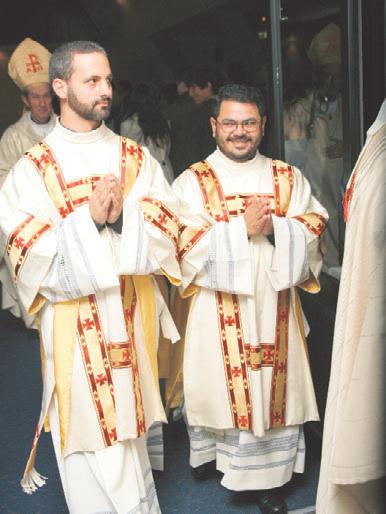
based in the parish of St Lawrence Balcatta until his ordination to the Priesthood in November.
“My mission now is to proclaim the word of God with all truth and boldness,”
“I hope and pray I will be faithful to God who has been faithful to me.”
Ernesto Cerutti tells a similar tale.
The youngest of six children, Ernesto is from Argentina.
He joined the Neocatechumenal Way at the age of 13 in 1993 through the encouragement of his parents and siblings. “Church was
an important part of my life even if I didn’t understand,” said the newly ordained Deacon after the ceremony.
At the time of joining the Way, Ernesto recalls feeling caught up in the usual confusions of being a teenager - while envying the life of his friends who were going to parties, he also knew this was not what would make him happy.
He remembers praying to God after completing Year 12 to help him discern what would be his vocation in life - whether to be married or called to the priesthood or to religious life.
Not long after, he spoke to the catechists of his Neocatechumenal community, who suggested he spend some time as a missionary.
Then, at a meeting in 1999 with other young men from around

the world who were also looking at entering the seminary via the Way, Ernesto was asked whether he would come to Perth, Australia; he said yes. Looking back at his time in the seminary, he says his encourage-
ment has come from his community (at St Gerard’s Parish Mirrabooka).
“Also the strength and dedication of the Pope John Paul II and the service of the Bishops and Priests of this diocese,” Ernesto said.
“Many times I have doubted, but looking back I see how God has been faithful and I can see nothing but joy.”
Deacon Ernesto will be based at Rockingham Parish until his ordination in November.
The word of God has been drowned out by the business of life and needs be proclaimed from the ‘marketplace’ so that people can hear, said Archbishop Hickey at last Friday’s Diaconate Ordinations.
In his homily the Archbishop spoke about the call to service of the two deacons and what it means in their call to announce the word of God. The call to service must be as personal as possible, said Archbishop Hickey.
“With the modern forms of communication, we are constantly in-touch with people all over the world.
“However the Spirit of Christ is personal.”
“In announcing the Word of God we are attempting to give Christ who works through us.”
The Archbishop also spoke about the various means of electronic communication, saying that the work of the deacons is not to be like this.
“Electronic communication places a distance between us and Christ’s work.”
“While we use the various forms of electronic communication, it is simply a means.”
“Jesus uses us - Manoel and Ernesto - personally to communicate his love towards us.”
Join Pope Benedict XVI in prayer July
Mission intention: That, aware of their own missionary duty, all Christians may actively help all those engaged in the evangelization of peoples.
General intention: That all citizens, individually and in groups, may be enabled to participate actively in the life and management of the common good.

Is it true our company philosophy is “We are a friendly and efficient company trading with integrity and determined to give our customers the very best of service?”
Is it true I regularly publish testimonial letters from satisfied customers because of my tremendous reputation for outstanding service?
Is it true I believe that before anyone buys a pre-owned vehicle they should choose their dealer before they choose their car and that dealer should be mine? and...
Is it true I say this, because of my reputation for honesty, fair dealing, huge range of vehicles and non pushy salespeople.
Is it true when people do business with me, I guarantee they will be treated with courtesy, sincerity, professionalism and efficiency?
Is it true that I have over 40 technicians who are dedicated to getting my used cars in first class condition before sale?
Federal Health Minister Tony Abbott said last week that he was disappointed that the Prime Minister and the three other most senior federal politicians left their speeches until the end of last year’s cloning debate.
Prime Minister John Howard, Treasurer Peter Costello, Deputy Prime Minister Mark Vaile and Federal Opposition Leader Kevin Rudd all voted against the Bill, that was passed by 20 votes, which lifted the ban on cloning human embryos for research purposes.
But the foursome made their impassioned speeches at the latter stages of the debate – a fact Mr Abbott says could have changed the course of the debate and possibly altered the result. “I must admit, I am disappointed the four most senior federal politicians did not make their speeches before the others did, so that the other politicians could have gained an insight from their wisdom,” Mr Abbott told over 400 youth at an Australian Catholic Students Association Congress in Canberra.
‘We want everyone to celebrate the huge day’■ By Sylvia Defendi
With only one year to go until World Youth Day (WYD) in Sydney kicks-off, Perth’s youth are invited to join thousands of others for a day of celebration and anticipation on Sunday July 15.
Youth from across the Archdiocese will be joining Archbishop Barry Hickey and his Auxiliary Bishop Donald Sproxton at the Vietnamese Catholic Community Centre on Victoria Road in Westminster.
A WYD tree ceremony will begin the day’s celebrations at 11am and will be followed by Mass. The tree ceremony will involve representatives from over 100 parishes, over 80 Catholic schools and numerous other Catholic agencies and organisations. “Each of these will be present with a cup of soil from their local community
grounds, which will be placed around the tree as a symbol of their contribution to the growth of WYD. “Archbishop Hickey and Bishop Sproxton will then bless the tree and the community’s efforts in preparation for WYD,” Perth WYD coordinator Anita Parker said.
Young people attending are also being asked to bring a bag of clothing donations towards the St Vincent De Paul Winter Appeal.
While launched in Sydney on July 1 with the arrival of the WYD Cross and Icon, the official WYD theme song, by Guy Sebastian and Paulini Curuenavuli, will also be launched in Perth as part of the ‘countdown’ celebrations on July 20.
More than 500,000 young people are expected to gather in Sydney for the next WYD to be held from July 15 to 20, 2008.
For further information contact Perth’s WYD coordinator, Anita Parker on either: 9422 7944 or 0439 091 217 or by emailing: anita. parker@highgate-perthcatholic.org.au



(next to cafe) AGONIS building, Albany Hwy in Gosnells Mobile to
“We’d like to think a few things might have changed since the feminist revolution. But sometimes you have to wonder,” director of Women’s Forum Australia, Melinda Tankard Reist told over 50 women on June 27. She was one of three speakers at the Violence Against Women forum hosted by SHARE WA and Spinifex Press, held at Guildford’s town hall.
And perhaps even more disturbing, she mentioned the “Peek-a-boo” pole dancing kit, which includes a ‘sexy’ garter belt and DVD demonstrating suggestive dance moves and is marketed online for children through a British toy company.
“The kit promises to “Unleash the sex kitten inside…simply extend the Peek-a-boo pole inside the tube, slip on the sexy tunes and away you go!”…”Soon you’ll be flaunting it to the world and earning a fortune in Peek-a-boo Dance Dollars,” Tankard Reist relayed.
sexualisation of young girls, when she cited a 2005 British survey of almost 1000 girls aged between 1519, who when offered a selection of occupations, 63 percent said they would rather be a men’s magazine model than a doctor, teacher or nurse.
6380 5160
RSVP by Friday 27th July

Tankard Reist, who spoke on the growing abuse of women through the premature sexualisation of girls, was joined by author Dr Mary Lucille Sullivan and Magistrate in the Children’s Court of Western Australia, Dr Sue Gordon.
Tankard Reist noted that violence against women was beginning earlier than many would care to acknowledge through the sexualisation of girls. “We’re seeing this harm reflected in eating disorders, binge drinking, drug abuse, hazardous, soulless sexual hook-ups, and an epidemic of self-harm,” she said, citing clothing lines offering girl’s T-shirts with slogans such as “Porn Star,” “Hotter Down Under,” “My Name Sounds Better Screamed”, or “Who needs a brain when you have these.”
Signaling growing awareness, she mentioned two significant papers, which were released by The Australia Institute last year: Corporate Paedophilia: Sexualisation of children in Australia and Letting Children Be Children: Stopping the sexualisation of children in Australia.
This year the American Psychological Association also released a major report on the sexualisation of girls, which states that “Girls view behaving in a sexual way with boys as a pathway to power… girls anticipate that they will accrue social advantages, such as popularity, for buying into the sexualisation of girls, and they fear social rejection for not doing so.”
Tankard Reist also explored the far-reaching consequences of the
The second most popular choice was “lap dancer” at 25 per cent - with teachers trailing at three per cent. As a member of the Coalition Against Trafficking in Women and author of Making Sex Work: A Failed Experiment With Legalised Prostitution, Dr Sullivan gave an insight into the lifelong effects associated with the sexualisation of girls and the often incompetent ways in which prostitution is controlled.
While Western Australia is looking to decriminalise prostitution in the near future, Dr Sullivan warned that there was currently limited research into the consequences of treating prostitution as simply another legitimate form of employment.
Dr Sullivan, who has conducted the majority of her research on the failed legalisation of prostitution in Victoria, said that the purported benefits were a myth and that the state had experienced an exponential boom in the industry since legalisation.
“In my suburb, there are 16 legal brothels. Each week 60,000 prostitution
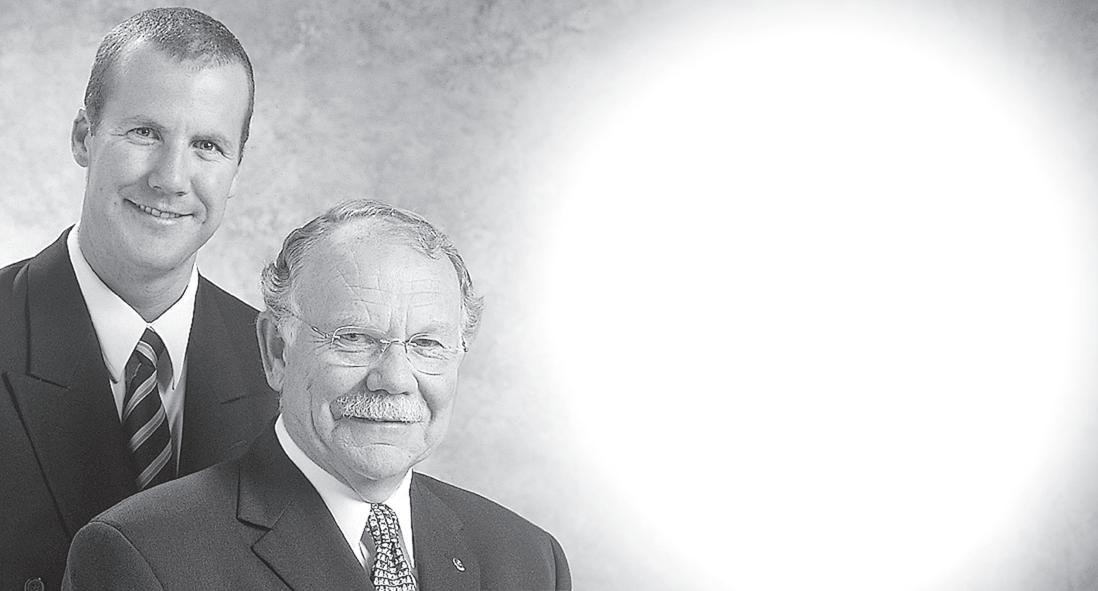
services are provided in Victoria alone, with Victorian men spending seven million dollars a week on prostitution,” she said. While the Victorian government had promoted greater policing, Dr Sullivan said that police sources had admitted that underground organised crime had infiltrated legal and continually existing illegal brothels.
Dr Gordon, who is also the chairperson of the national Indigenous Council, continued the forum with an insight into pornography and the detrimental effects it has had on women and their families in indigenous communities.
“While it takes a long time for the government to listen, children and women, who are facing daily abuse, desperately need to be listened to. Many indigenous women and children are being violently abused emotionally, physically and sexually by the men they are with,” she said.
Towards the conclusion of her speech, Tankard Reist commented that sexual liberalism had not advanced women’s freedom, but eroded and undermined it.
“We are seeing more harassment, stalking and rape, more alcohol fuelled sexual abuse and date rape drugs,” she said.
“Females are up for grabs on cruise ships, in toilet blocks in suburban shopping malls, and in indigenous communities, awash with porn, where even baby girls have sexual diseases,” she said.
Thea, Valentina and Paul died c. 308 feast – July 25



These Christians were martyred in Palestine during the persecution of Diocletian. Arrested at Gaza, Thea was threatened with prostitution if she didn’t abandon her faith. When she rebuked the governor, she was tortured. Valentina, from Caesarea, spoke in Thea’s defense at her trial. She too was arrested, and when she kicked over a pagan altar, she was tortured and burned to death with Thea. Paul was beheaded at Gaza July 25, 308. Before he was killed, he prayed for Christianity and for his judge, his executioner and the Roman emperor.
WASHINGTON (CNS) - The Hudson Institute’s Centre for Religious Freedom presented its initial findings regarding world trends in religious freedom on July 9, ranking countries’ religious intolerance on a scale of one to seven and naming radical Islam as the greatest threat to religious freedom worldwide.
The findings are part of the centre’s latest book, “Religious Freedom in the World, 2007,” which will be released next year and analyses 100 countries, focusing on those countries where religious freedom is least protected.
Religious freedom rankings were sorted according to geographical regions and also by the prevailing religion present in each country. A score of one was the best, while seven indicated severe religious intolerance.
Most countries with the poorest rankings were found in Asia, North Africa and Eastern Europe, while the best-ranked included the United States, Canada and countries in Western Europe. Countries in which the population is predominantly Catholic or Protestant were found to have a high degree of religious freedom, with the exception of a few, including Cuba, Colombia and Zimbabwe.
Religious tolerance has been growing in Latin America as a whole during the last 20 years, and it is now one of the most tolerant areas in the world, said Paul Marshall, a senior fellow with the institute, who, as part of a five-person panel, presented the findings.
Governments and regimes which restrict religious freedom do so for a number of reasons, Marshall said in an interview with Catholic News Service.
Although the survey showed that decreases in religious freedom were often accompanied by a national decline in economic and political well-being, many regimes have interests - whether religious or political - that are distinct from those of the country’s people, he said. Several regimes seek to cultivate their own religious motives using the government as their tool. Other regimes, such as China, simply want to control all activity within their borders, religion included, Marshall said.
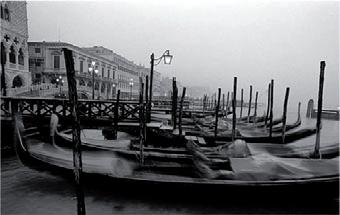
In his opening statement on July 9, Marshall cited specific governmental violations of religious freedom, including China where more than 1,000 Falun Gong practitioners and several Catholic bishops are under house arrest, and Eritrea, where unauthorised meetings of more than seven people are illegal and entire wedding parties have been imprisoned.
The conditions in prisons are harsh, Marshall said. In Eritrea “in 2003, 57 teenagers found with Bibles were jailed in metal shipping containers in the desert; all but six died,” he said. “Behind these statistics are very terrible - but also very inspiring - human stories.”


The panel emphasised the importance of religious freedom as the “first freedom.” One panelist, the Rev. Richard Land, president of the Southern Baptist Convention’s Ethics & Religious Liberty Commission, referenced the statement by Pope John Paul II that without freedom of conscience and of religion all other freedoms become meaningless.
The study found that restrictions on freedom of religion to some degree affected all groups, including agnostics and atheists. Whether a country was predominantly secular or favoured an established religion had little to do with that country’s record for religious tolerance.
The centre found that most countries with high Islamic populations typically offer the least protection of religious freedom, with the exception of Mali and Senegal in East Africa. The poorest-scoring countries include Sudan, Uzbekistan, Saudi Arabia, Turkmenistan and Iran. The low ranking of Islamic nations means that the greatest struggle for religious freedom is being fought within the Islamic community, Rev. Land said.
“We need to remind ourselves that the people who are suffering the most from this


radical Islamic jihadism are followers of Islam who refuse to knuckle under to this particularly virulent brand of ideology that is being propagated in their name,” he said.
Panel moderator Michael Novak, of the American Enterprise Institute, defined radical Islam as groups of Muslims who would
use their beliefs to justify violence. Brian Grim, a senior Pew research fellow on religion and world affairs, helped to analyse the data and spoke as a panelist on the forum.
A summary of the Hudson Institute’s findings and rankings of religious freedom by country is available online at: www. hudson.org/religion.




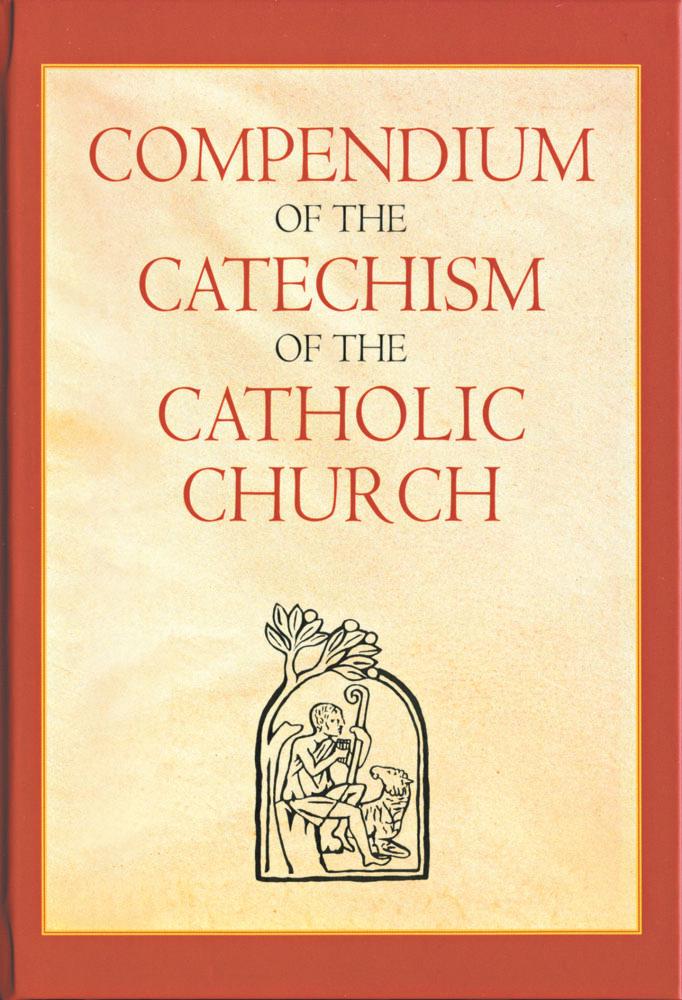
Based on the Catechism of the Catholic Church, The Compendium of the Catechism of the Catholic Church is a concise reference book for communicating the Catholic faith and the Gospel message. With beautiful artistic illustrations, this is a superbly designed hardback book that presents the essentials of the Catholic faith in question and answer format.
$12.95+postage


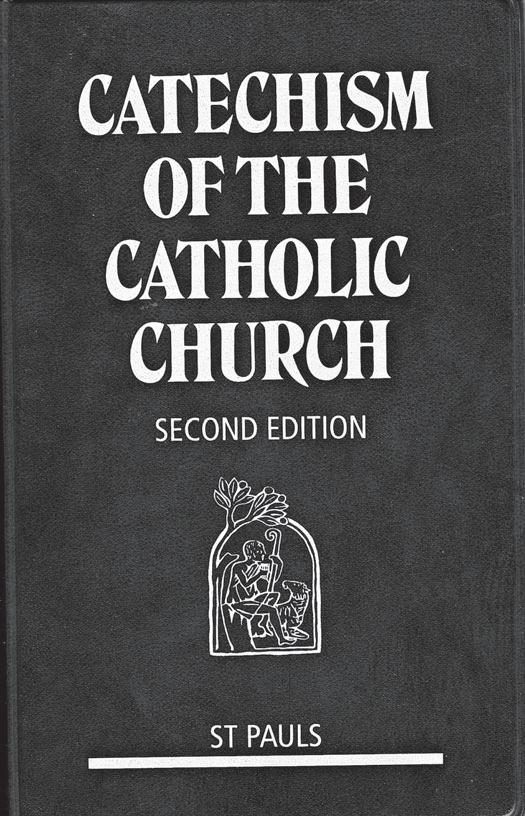
This is the second (revised) edition of the complete text of the Catechism of the Catholic Church, containing the official teachings of the Church. This vinyl bound pocket edition includes a glossary of terms.




John Paul II leads consecrated persons through a beautiful meditation on the mystery of their celibate vocation, the mystery of their consecration and the specific apostolate to which the consecrated person is called.
$1+postage

This stunning apostolic letter is the elaboration on what John Paul II called ‘the feminine genius’. Taking from scripture, the person of the Blessed Virgin Mary and the example of women throughout history, John Paul II goes beyond the stereotypes to the heart of what being a ‘woman made in the image and likeness of God’ means and thus the special mission this calls women to.
$2.50+postage



Sacramentum
By Pope Benedict XVI$9.95+postage

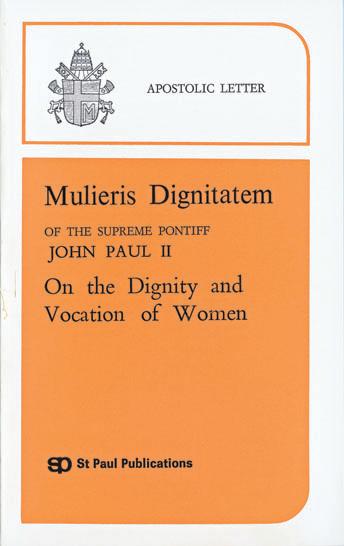
$9.95+postage

Redemptor Hominis: The Redeemer of Man
This was John Paul II’s first encyclical letter, reflecting on Jesus Christ as the Redeemer of all humanity, what it means to be redeemed in Christ, the implications this carries for the modern day world, and the role of Mary in our Redemption.




The Holy Father’s first Apostolic Exhortation is a profound teaching on the Eucharist as the Body and Blood of Christ, what it means and why it matters to Catholics.


$4.95+postage

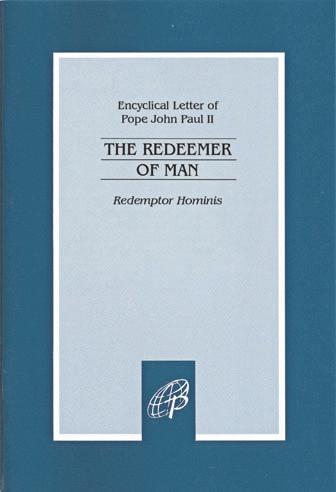

In this letter, John Paul II speaks to all families in today’s world. He reveals that all families are called to a specific mission in this world – to live a true civilisation of life and love, and liberate the forces of the good realised by love. A must for all parents, all those who help families and couples preparing for marriage.




Santa Maria College students visited a remote Aboriginal community - and came away the richer for it.
Twelve students from Santa Maria College spent June 16 to 24 working in one of Western Australia’s most remote Aboriginal Communities.
The Year 11 students and their three teachers travelled 650 kilometres across the Great Sandy Desert to Punmu Aboriginal Community for a week of cross-cultural experience and service work.
“It was the experience of a lifetime!” said Santa Maria student Tessa Ryan. “It gave me another outlook on life and I will definitely recommend it to other students.”
The Punmu Immersion was offered through Santa Maria’s Service Program which requires senior students to complete a minimum of 20 hours service work
during the school year. Loretta Wholley, College Mission Leader, said the Service Program is “based on the role of the Sisters of Mercy [founders of Santa Maria] who noticed people in need and worked with them.”
“That was our role in Punmu,” said Loretta. “We were engaged in a real life situation and were able to address the Community’s needs.”
The Santa Maria group worked on two projects during the Immersion. “We helped prepare a youth centre by cleaning it and painting the base coat,” said Tessa, “but further work will be done by the Community so they have a sense of ownership for it.”
The group also prepared a block of land for a future horticultural garden at Punmu’s Rawa Community School.
“Before we started the garden it was just a block of red dirt, covered in weeds and pieces of scrap metal and torn fencing,” said Santa Maria student Jess Warr. “It was very ful-
filling to look at the finished product… even though the garden was still pretty bare, we had prepared it for a new beginning.”
The Punmu Immersion provided the Santa Maria students with an invaluable opportunity to develop a personal and educated view of an Aboriginal Community.
“It was really good to learn firsthand about Aboriginal culture,” said Jess. “By getting away from all the stereotypes that exist, we got a better insight into Aboriginal society and were able to create our own view.”
Tessa believes likewise. “Punmu was a fabulous opportunity for us to develop our own opinions about Aboriginal society,” she said. “I felt that as a group, we were making very real steps towards reconciliation between Indigenous and nonIndigenous Australians.”
Santa Maria looks forward to the Punmu Immersion becoming part of the College’s annual Service Program.
Continued from Page 1
the globe, while the Catholic ADF Diocese has over 44,000 people, including serving and non-serving members, their spouses and children.
He says the problem lies in the fact that they are scattered all over Australia.
In November 2006 on the feast of All Saints, Bishop Davis launched an appeal organised by the ADF’s Diocesan Finance Council for the training of lay leaders with a flyer sent to 600 ex-servicemen and women and has so far raised over $30,000 after $60,000 worth of setup costs.
But Bishop Davis says there is no substitute for a priest, who can celebrate Mass, anoint people when they are dying and give the Sacrament of Reconciliation.
He says the Holy See needs to be petitioned to find a solution, as the Second Vatican Council’s directive for the Australian Catholic Bishops Conference to supply the Catholic ADF Diocese with sufficient numbers of qualified clergy to serve as chaplains is clearly not being seriously addressed.
Up to five alternate models have been proposed in Bishop Davis’ meetings with the ACBC, but says
it needs serious attention from the Australian bishops for it to survive.
“The Catholic ADF Diocese was erected precisely because it’s what the Church wanted us to do, but now it can’t survive,” he said.
“I’m living on a pension, I have no priests to go out there to offer the sacraments to my people, so I think the Church needs to find other ways of providing pastoral care.
“I find it difficult to recognise that in the official yearbook of the Catholic Church (in Australia) there are over 3000 priests – religious and secular, and there’s only one thousand-andsomething parishes...”
- Bishop MaxDavis
“People are still not prepared to confront the issue, because it’s not a pleasant issue.
“While there is a fictitious structure that says pastoral care is being provided to the Australian Defence Force, then it’s going to be maintained as a farce.
“What is not happening is
people saying ‘it’s not a fictitious structure, it is a real concern and a direction of the Second Vatican Council and therefore it’s got to be addressed in a proper way’.”
Bishop Davis says he will not argue with the Australian Bishops telling him they are struggling for priestly vocations themselves.
“But I find it difficult to recognise that in the official yearbook of the Catholic Church (in Australia) there are over 3000 priests – religious and secular, and there’s only one thousand-and-something parishes,” he said. “So we have twice as many priests as we have parishes. Now I’m sure that age demographics are a factor, but I really think that if people were really serious, they would make an effort. I really do.”
Before becoming Bishop of the ADF, Bishop Davis served as military chaplain for 24 years, mostly in the Far East with the Navy, including three stints as Fleet Chaplain and two as chaplain of the Naval Air Station, and received a set of honorary wings for the length and level of dedication to the NAS. Chaplains must meet the same educational, mental and physical requirements as all other servicemen.


Practise 1 Corinthians 13:4
In the book of Corinthians, St Paul describes love. Read the passage this week and identify concrete ways you can apply it to your married life. How can I be more patient with my spouse? What kind gestures can I do? Am I ever envious of my spouse and how can I change this? Am I sometimes arrogant when it comes to disagreements? How can I be a little more humble?
Archdiocese of Perth
Catholic Education Centre, 50 Ruislip Street, Leederville
TERM 3 COURSES
Commencement Date: 24th July 2007
Timetable
Tuesday 9.30am-12pm
An Introduction to Christology - Who do you say I am? with Sandra Dillon 1pm – 3pm
The Art and Heart of Creative Conflict.. The language and Spirit of Truth with Brendan McKeague
Thursday 9.30am -12pm The Prophets with Stephanie Woods
Friday 9.30am-12pm
In the Midst of Life.. Caring for the Sick, the Dying and the Dead with Gerry Smith
All courses run for 8 weeks. Cost $50
For Enrolments & further Information
One of America’s most influential bishops has defended the right of all Catholic bishops to publicly rebuke politicians who support pro-abortion laws in an interview with The Record’s Paul Gray.
Archbishop Charles Chaput of Denver, Colorado said during a visit to Australia that the abortion issue is one of basic human dignity, and not just an issue of concern to Catholic sectarians.
“These are not sectarian issues,” he told The Record. “We’re not saying Catholic legislators ought to promote belief in the Trinity.
“Abortion is about killing somebody else. It’s about human beings.
“Do you keep quiet if someone’s going to kill someone else, or do you speak up? And if you don’t speak up or you say people have a right to kill someone else, can you honestly say you’re in communion with the Church?”
Archbishop Chaput said that those American bishops who spoke out on abortion during the last Presidential election campaign in 2004, including himself, were not trying to make a name for themselves.
“We’re just trying to be faithful to our role as bishops, and we want to remind our people that you can’t be a Catholic if you’re not a Catholic in ritual and how you lead your life,” he said.
“And how one votes, and how one leads if one’s a political leader is the way you live your life.”

The Denver Archbishop, who is also regularly outspoken on immigration issues in the USA, said he was fascinated by the contrasting receptions received by his comments about the two topics.
“The people who were strongly critical of me for speaking about life issues at the time of the last presidential election have been very encouraging for me to speak up on the immigration issues,” he said.
“It seems to me that those who claim separation of the Church and state often do that because of a particular issue, not because they have a particular theoretical commitment to separation.
“If I speak about something they don’t like, I should be separated. If I speak about something they support, they’re happy. It’s very odd.”
“And it cuts both ways, liberal and conservative. What I hope we develop are people who are Catholics, who aren’t actually liberal or conservative, but who are just simply Catholic.”
Archbishop Chaput said that there is a hierarchy of moral issues, with an issue like abortion being more “foundational” than issues like immigration.
“Foundational means that the rest of the system, whether it be a moral system or a theological system, has its basis on these foundational issues.
“For example, the right to life, the dignity of the individual from the moment of conception through natural life, is a foundation on which we build our understanding of just immigration laws, because just immigration laws depend on your belief in the dignity of individuals.
“If you don’t believe that, you’re going to have very different immigration laws than if you do believe in it.”
Another example of the hierarchy of truths is that belief in the


Blessed Trinity is more foundational than belief in the Immaculate Conception, he said. “Both are absolutely true, but they’re not equally foundational.”
The archbishop said that the Church’s teaching against capital punishment is another example of a teaching that is not as foundational as the prohibition against abortion.
“The Church teaches that you don’t kill your brother, even if your brother is guilty,” he said. He also said that Australians were “more sensible” than Americans because no Australian state allows for capital punishment in its laws.
However, to the proposition that capital punishment is close to being ‘up there in importance’ with abortion, he replied: “That’s not true. It can never be true, because one is exceptionless, and the other has
exceptions. They are not foundationally the same. “There can never be a situation, one incidence, where abortion is a moral act. There can be incidents where capital punishment is a necessary act to protect society and therefore a moral act, a morally acceptable act.”
Archbishop Chaput, who is descended from American Indians, said Pope Benedict was “absolutely well-informed” in his comments earlier this year on the conversion of indigenous peoples.
“A lot of the colonisation efforts are very seriously criticised, in some cases appropriately, but the danger of that of course is that it can be a false impression that the Christian faith was forced on people when it actually wasn’t,” he said.
“I know that among the very oldest native people of the United Continued on page 14
Michael Galovic is an iconographer based on the Central Coast of NSW, Australia. His icons are replicas of existing prototypes of traditional icons, his own versions of these within the icon tradition, and “new” icons created for the saints who have not been depicted as icons before, or are recently canonised saints such as: St Marcellin Champagnat, St John the Baptist de la Salle and Australia’s own Blessed Mary MacKillop.
Icons + Art brings his prominent works together in one glorious book. From traditional religious icons such as the Last Supper, the Virgin and Child, the Archangels and Rublev’s Trinity to new icons of Blessed Mary Mackillop, this book is a grand collection of the Church’s rich iconographic tradition.
“Michael Galovic has proven himself as a master of traditional Orthodox iconography. He marries traditional techniques and concepts with contemporary forms to produce works, not only of great beauty, but which speak to the responsive spirit of the eternal quest for grace.” - Rev. Stephen Godley (rtd) ABC Radio Australia
Available now from the Record $80+postage








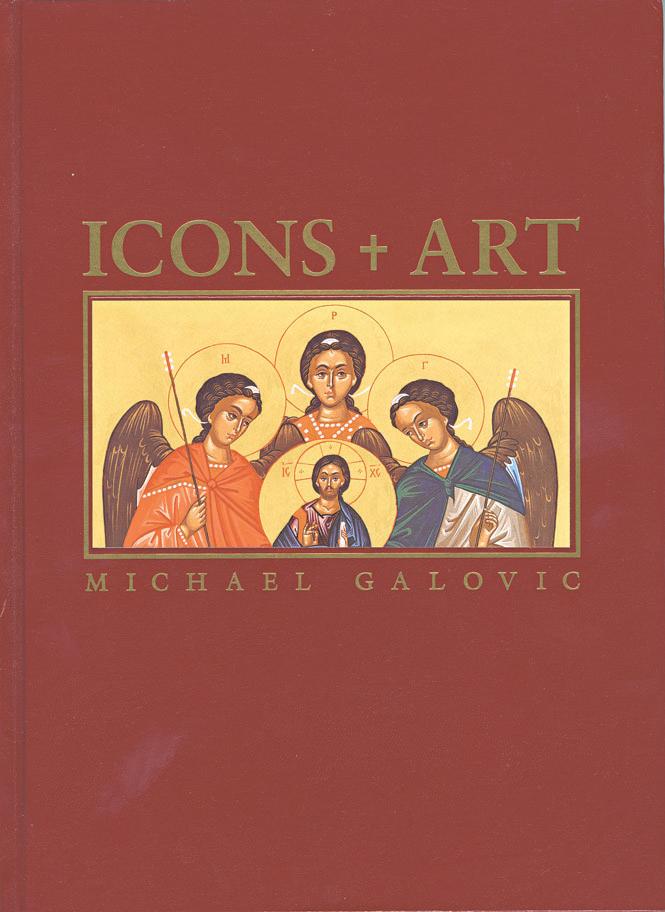

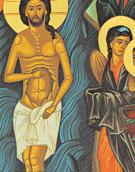







The Pope’s letter to the faithful of China is set against the backdrop of the world’s most populous nation set to become its dominant superpower, 60 years of Communist rule, a history of persecution of Christians and the Communist Party’s attempt to divide and conquer the faithful by establishing a parallel church - not to mention Taiwan and Hong Kong. How did Benedict approach such a tricky job?
■ By John ThavisWith his longawaited letter on China, Pope
Benedict XVI has opened new prospects for reconciliation among the country’s divided Catholic communities.
How and when these divisions can be overcome is now primarily up to Chinese Catholics. But the Pope has underlined the urgency of unity, inviting bishops and the Catholic faithful to move beyond “suspicions, mutual accusations and recriminations” within the Church.
Certainly, the Pope’s letter was aimed in part at the Chinese policies that have engendered such tensions. The government requires registration of bishops and church communities and uses this as a tool for control; some Catholics view registration as a serious compromise and prefer to exercise the faith in a semi-clandestine manner.
In language that was pointed but not polemical, the Pope reject-

Love: ...is what is at the heart of the Holy Father’s letter to the Church in China. This Chinese character is the traditional way of writing the word.
ed state interference in church affairs and explained why the Church’s structure and activities do not threaten the civil order.
He also offered to dialogue with the government on the chronic conflicts over bishops’ appointments, church jurisdictions and diplomatic relations.
The Pope knows there is not a lot he can do about the policies adopted by the Chinese government. On the other hand, he has a much greater opportunity to help resolve internal church problems. That’s where the focus of this letter lies.
In effect, the Pope was telling Chinese Catholics that the split between clandestine and officially
registered churches may be understandable, but it compromises the Church’s pastoral effectiveness.
A divided church, he said at the beginning of his 55-page letter, cannot evangelise effectively because it cannot be a witness of love and unity.
The Pope then gave several practical guidelines aimed at bridging the gap between China’s Catholic communities. On perhaps the most crucial question - whether local churches should register with the governmenthe outlined a margin of flexibility that went far beyond previous Vatican statements, in effect leaving it up to the judgment of the local bishop.
He also answered a question that surfaces at the grass-roots level of the Church in China, when he encouraged lay faithful to participate in Masses and sacraments carried out by government-registered bishops and priests, as long as they are in communion with Rome.
One of the most important accomplishments of the papal letter was that it finally brought into the open some of the sensitive issues that have been discussed behind closed doors for decades. Indeed, the Pope seemed convinced that openness, even if it brings some risks, is the best strategic path for the Church in China at the moment.
For example, in discussing the status of Chinese bishops, he candidly stated that many of the bishops ordained without papal approval have later sought and obtained reconciliation with the Pope.
The problem, he added, is that most of these bishops have never told their own priests or faithful that they have reconciled with Rome. It is indispensable for them to bring this fact into the public domain as soon as possible, he said.
A theme running through the papal letter is that the Catholic Church in China is one, not two. The terminology of the letter avoids emphasising a dichotomy between so-called “underground church” and “official church,” which itself is significant.
The Pope did emphasise some basic principles about ecclesiology, most notably that church communion requires unity among the bishops and with the Pope.
The Pope does not have an external role but a ministry intrinsic to each particular church, he said.
He also rejected efforts to create an autonomous national church and took aim at “entities desired by the state and extraneous to the structure of the church” that claim to place themselves above the bishops.
The Pope clearly had in mind the government-sanctioned Chinese Catholic Patriotic Association, which was mentioned in a footnote in the same section.
But the thrust of the papal letter was to encourage Catholics to work around these kinds of obstacles, rather than allow them to divide the church community.
The Pope knows that the healing process among Catholics in China will not happen overnight and may, in fact, take many years. But, meanwhile, he has sketched out the direction and tried to clear the path to unity.
- Government bans website text - History of a troubled Church VISTA 2&3
Cardinal Joseph Zen Ze-kiun of Hong Kong (pictured, at right) said the Pope’s letter to Chinese Catholics does not have a secret political agenda.
“The doctrine painstakingly explained by (Pope) Benedict XVI is nothing but the most traditional and universally accepted Catholic principles, belonging to the religious field, with no secret political agenda, even less with an intention of attacking anybody,” Cardinal Zen said in a statement on June 30, the date the papal letter was made public.
The cardinal expressed hope that
Chinese leaders “would read the Pope’s letter from this perspective and understand the true, unchangeable nature of the Catholic Church.”
“The voice of our bishops and priests in China is often prevented from reaching our leaders; now that the letter of the Pope is in the hands of our leaders, our bishops and priests can thus refer to it directly as a common starting point for dialogue,” he said.
Cardinal Zen said he hoped that China’s bishops and priests “stand united with the Holy Father.”
Calling it a “historical first that the Pope has written a letter to the Catholic community in a particular region,” the cardinal said Pope Benedict wanted to show special concern for “his children and give them some guidelines in this seemingly crucial moment, so that they might free themselves from their unfortunate predicament.”
Cardinal Zen said he admired “the precious balance achieved by the Holy Father between his passion for the truth and his love for his children.”
“Only an outstanding theologian and
a tender father could satisfy at the same time the demands of the truth and the kindness toward people,” he said. CNS

Some Chinese welcome papal letter; others need time to digest it
Some Church leaders in China who have read Pope Benedict XVI’s letter to mainland Catholics say they feel positive about it and are willing to heed the pontiff’s call for unity.
Many Catholics contacted by the Asian church news agency UCA News said they needed time to digest the lengthy and theological letter and to consider its impact.
Nuns and members of the Catholic hierarchy in China shared with UCA News their initial reactions to the papal document, made public on June 30. The letter urged cooperation between clandestine Catholic communities and those officially registered with the government. It criticised Chinese government limits on Church activities, but on several key issues - including the appointment of bishops - it invited civil authorities to a fresh and serious dialogue.
By July 3, some Chinese Catholics said they had read the 50-page Chinese version of the papal letter several times
already. In some places in Hebei province, thousands of copies had been printed.
Bishop Joseph Wei Jingyi of Qiqihar, who has not registered with the Chinese government, and a few other church leaders told UCA News they were grateful to the Pope for his concerns about the Church in China. Bishop Wei, based in northeastern China’s Heilongjiang province, said the letter provides practical guidelines for church life and evangelisation in China and gives directions for the Church to move forward.
On July 3, the Bishop was asked to meet provincial religious affairs officials about the papal letter, UCA News reported.
A priest from Hebei province’s Baoding Diocese agreed the letter is significant.
“It is time for Rome to say something” to give a clear and definite stance, he said, which is “to be friendly to those whose stance is opposite to yours”.
By revoking all previous directives from the Vatican, he said, the letter urges the Church in China to gradually return to the universal Church.
“Certain people may not accept or understand it,” he said, but he added he


thinks every Catholic should, in obedience, “accept the document unconditionally.”
Bishop Wei said he completely agrees with Pope Benedict, especially on the revocation of past faculties and direc-
tives given the changed situation in China. The Holy See had previously granted special faculties that effectively
We’ll ordain regardless, says Government’s man
A Catholic lay leader from Beijing said China will continue to “self-elect and self-ordain” bishops.
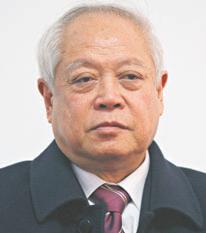
F“We ordain bishops only for the sake of evangelisation in the mainland. Nobody can stop us,” said Anthony Liu Bainian, vice chairman of the Chinese Catholic Patriotic Association, which acts as a liaison between the Chinese government and Catholic churches that have registered with the government.
Liu told the Asian church news agency UCA News that it is up to Rome to recognise these bishops.
Pope Benedict XVI’s June 30 letter to the Catholic community in China
described the self-elected and selfordained bishops in China as “validly ordained.” But it said certain bishops among them “lack a pontifical mandate” and are to be considered “illegitimate.”
Usually the elected Bishop candidate would apply to the Vatican for approval after his episcopal election in China. In some cases the Vatican did not give its approval, but “the fault lies not with China,” Liu said, noting that he had read the papal letter three times and found it comprehensive. Three illicit episcopal ordinations - in the Dioceses of Anhui, Kunming and Xuzhou - took place in 2006. The Vatican issued two statements denouncing them. “Ahead of any improvement in China-Vatican relations, we will continue our way,” Liu said.
The patriotic association was established in 1957, six years after mainland China broke diplomatic contact with the Vatican by expelling the apostolic nuncio from the country.
Liu disagreed with the papal letter’s implication that the patriotic association placed itself above the bishops.
The Pope’s letter notes that “the claim of some entities, desired by the state and extraneous to the structure of the Church, to place themselves above the bishops and to guide the life of the ecclesial community, does not correspond to Catholic doctrine.”
Liu described the function of the patriotic association and its branches in local dioceses as a bridging role between the Church and the government.
allowed underground bishops to ordain other bishops and to ordain priests without formal theological education. It also had urged Catholics to avoid receiving sacraments from bishops or priests who belonged to the Chinese Catholic Patriotic Association, a governmentapproved structure to administer registered Catholic churches.
Some clergy around China who have not registered with the government and have been functioning clandestinely told UCA News they would gather priests and lay people together to study the letter carefully.
One of them said he wants to ask all clergy - from the registered and nonregistered communities - to make their stance over the letter clear in order to work out a plan.
A lay Catholic scholar in central China said he thought it would not be too difficult for clergy who have registered with the government to accept the document. However, he added, how to put its recommendations into practice is crucial.
Although the Vatican had placed an icon with a link to the letter on its home page, UCA News reported it was not easy for many mainland Catholics to down-

Some Catholic websites in mainland China that uploaded Pope Benedict XVI’s letter to Catholics in the mainland shortly after it was released were ordered hours later to remove it.
UCA News observed that a few hours after the Vatican issued the letter on June 30 at 6pm Beijing time (12 noon in Rome), several mainland Catholic websites uploaded the simplified Chinese version of the letter. However, most of those websites, which usually carry news on the Universal Church, the China Church and the Pope, had removed the text by the next day.
A priest in charge of such a website registered with the government told UCA News on July 2 he felt helpless because he strongly believes that “China Church websites should publish the Pope’s letter.”
The priest, who asked not to be named, said some government officials who came to his office on June 29 asked about the letter but did not explicitly say he could
not carry it. The next evening, he uploaded the letter to his site, but he was told on July 1 morning he was not allowed to upload the text.
By July 2, UCA News found five such websites, mostly run by “underground” Catholics, still had the full text, 19,763 Chinese characters, including the footnotes.
“Actually, this is not the first time we were told not to put certain news reports and articles on the Internet, particularly concerning China-Vatican relations and what Cardinal Joseph Zen Ze-kiun of Hong Kong says,” the priest pointed out. He added that since he had no choice, he removed the Pope’s letter, lest his website face forced closure or other possible troubles.
As Pope Benedict mentioned in the letter that there are “increased opportunities and facilities in communications” in the mainland, so the priest said he thinks China’s Catholics can get the papal letter through other channels.
load or open the papal letter of more than five megabytes because of slow dialup Internet connections and low-grade software.
A young laywoman in Beijing said there are certain points she does not understand in the letter, but that this could be due to her inadequate knowledge of the Church and its situation as a whole.
Father John Baptist Zhang Shijiang, director of Hebei Faith Press, said the Catholic communities in China need time to read and consider the letter. He noted that the Pope wrote from the viewpoints of spirituality, theology, ecclesiology and pastoral care. Catholics also need to study how Chinese society at large regards the letter, he added.
A few young priests from both registered and non-registered communities who had studied abroad expressed concern over the letter’s impact on ChinaVatican relations. They said they were not sure how the government would react to it, especially since both sides seem unwilling to compromise on the issue of who appoints bishops.

The priest also said that forbidding Catholic websites in China from carrying the letter proves what the Pope said about governmental interference in religious affairs and that the Church cannot enjoy full religious freedom.
Other popular Catholic websites in China were warned to remove or not upload the letter. Some of them informed their readers on June 29 that the long-awaited papal letter would be released the next evening, and they urged their readers to watch for it and related reports. But since then, such websites have carried Vatican news but not about the papal letter.
A Catholic layman told UCA News on July 2 that after browsing the Internet, very few Catholic websites in mainland seem to have the papal letter, so he concluded that government authorities have acted against the webmasters.
Even so, most mainland Catholic news websites did
or decades, foreign in almost every aspect, China has seemed inscrutable to Western eyes and in few areas more so than in religion - specifically Christianity. Until only a few years ago it was estimated (no-one had any accurate idea) that there were probably no more than 15 million or so Christians in the world’s most populous nation; this figure has now been revised by one authoritative writer, David Aiken, to be closer to 100-120 million, around 15 per cent of the total population. Many of these were the inheritors of efforts that had been begun in the China of the 19th Century as European and American Catholic and Protestant missionaries absorbed the flow of information emerging from a country increasingly being opened up by colonial powers and began to realise the potential for evangelisation.
But the missionaries that took advantage of the opening up of China that accompanied its foreign exploitation and domination were not the first - nor were they to be the last.
The Jesuits and Franciscans had most famously arrived in China hundreds of years earlier through the efforts of individuals such as the meteoric St Francis Xavier who died on a Chinese island but never reached the mainland and Matteo Ricci who began learning Chinese script in Macao in 1582. Nestorian monks had also established their version of Christianity a thousand years earlier in northern China. With the end of the second world war and the Communist victory over (and expulsion to Taiwan of) Chiang Kai-Shek’s nationalist forces in 1949, Communism targetted Christianity as a danger to the hegemony of the Party and its values.
This began one of the significant persecutions of the Church in modern history. The Catholic Church, the spiritual and intellectual powerhouse of opposition to Stalinist Marxism and its Maoist derivative, both of which had declared their intention to eradicate religious belief, became a leading target of the Chinese Communist Party.
The small Christian communities of China were effectively cut off from any contact with their associates around the world and consigned to decades of covert activity. Christians of every kind in China were banished or imprisoned, consigned to Mao’s equivalent of the Gulag Archipelago.
One key tactic employed by the Communist Government was the establishment of a Patriotic Catholic Association, established as an effort to divide and conquer the Catholic Church’s presence in the country.
Catholics could join the association and worship in the churches it controlled with those clergy who chose to cooperate with the Government, but at the price of rejecting adherence to Rome and its authority to consecrate bishops and of maintaining silence on any issues deemed by the Party to be matters of state policy, such as abortion.
This saw the beginning of the ‘underground’ Church in China which chose loyalty to Rome in matters of faith over the authority of the Government to determine its course. Ongoing bitterness between the two churches became a fact of Catholicism in China as the underground Church rightfully saw itself as remaining loyal to the Church in persecution. The same pattern was repeated in other Christian denominations.
The Cultural Revolution of 1968 and the accompanying years of turbulence saw Christians especially persecuted, together with intellectuals and other ‘anti-proletarian’ elements as the Red Guard reduced the country to near-anarchy in a stage-managed attempt by Mao to consolidate his power and annihilate his internal opposition, both real and imagined. As China dropped its official adherence to Communism and embraced western capitalism under the guidance of Deng Xiao Ping in recent decades, persecution has dwindled in comparison to earlier times - but underground bishops and clergy are still regularly arrested, imprisoned and even kidnapped at moments when their opposition may cause embarrassment, as when Chinese authorities arrange the consecration of new bishops for the Patriotic Church. The situation has become increasingly complex over the years as the Patriotic bishops, pricked by their consciences (or is that the Holy Spirit?) have increasingly sought - and received - discreet reconciliation with Rome. Stories abound of concelebrated Masses between Patriotic and underground bishops in venues like hotel rooms and other places.
The reconciliation of Patriotic bishops with Rome is known about and accepted by the Chinese Government on the condition that the bishops make no trouble in religious or political affairs. It is now generally accepted that something like 80 per cent of the Patriotic bishops are reconciled with Rome.
carry a June 30 news report from China’s Foreign Ministry. In it, Qin Gang, a Foreign Ministry official, responded to a question about the papal letter.
“We have taken note of the letter released by the Pope. China has always stood for the improvement of ChinaVatican relationship and made positive efforts for that. China is willing to continue candid and constructive dialogue with Vatican so as to resolve our differences,” Qin said.
He also reiterated China’s position that improving China-Vatican ties still has two conditions: the Vatican must sever its so-called diplomatic ties with Taiwan and recognise the People’s Republic of China as the sole legitimate government representing all of China, and it shall never interfere in China’s internal affairs, including in the name of religion. “We hope the Vatican side takes concrete actions and does not create new barriers,” he added.
Among the complicating factors are that relations between underground and Patriotic officials vary depending on region and the history associated with it. Another is that it seems many Patriotic seminarians choose to be ordained by underground bishops when their own bishops are too clearly controlled by Beijing rather than faithful to Rome. Sometimes the sheep must lead the shepherds. Additionally, China demands the Vatican abandon diplomatic recognition of the government in Taiwan as a pre-condition to the establishmentof diplomatic ties - and greater freedom for Catholics.
The Vatican, however, refuses to abandon Taiwan as the price for the tempting apple proffered it by the Chinese government, but is prepared to make its Nuncio from Taipeh to Beijing.
That Benedict feels he can speak so clearly and openly to China’s faithful, especially all the bishops, is clearly a significant development. That he feels he can make clear points to the Patriotic bishops about policies they should pursue - such as more publicly revealing their ties to Rome - signals a growing confidence on the part of the Holy Father regarding the links between Rome and the Church in China. A new era is clearly dawning for the Church in the nation that will dominate the world scene. It is also exciting, to say the least. THE RECORD

Sitting endlessly in doctors’ surgeries lately, I have rather overdosed on late issue women’s magazines.
But no time is wasted it seems, for tucked in amongst the bizarre mishmash of unbelievable drivel was an interesting piece consisting of women telling their side of their childless lives and how hurtful, insulting and insensitive it was to call a woman deliberately barren due to the fact that she has chosen to have ‘relationships’ but not to have children.
Those who felt they had made a free choice were quite happy to be childless and were unfazed by the comment.
What made it so very interesting was the airing of the enduring dissatisfaction and sadness of most interviewees about this aspect their lives.
The remark seemed to have touched a very raw nerve. Many of the women felt they had little active choice in their childless state. They viewed it rather as the result of decisions forced on them by unavoidable circumstancesfor example, they had no ‘suitable partner’, it did not fit in with work, they did not feel financially secure
enough to think about it until it was too late.
Many circumstances appeared to contribute to their childlessness and the majority of them seemed to regret it quite bitterly to the extent that some wished they had gone ahead and had children despite the perceived difficulties.
Much food for thought here.
Tellingly one of the women commented that, though she had eventually had twins at the age of 42, she still met concerned criticism from people around her – what about all those health, environment, career risks (with friends like these who needs enemies)? She genuinely felt trapped in a no-win situation just by being a woman! What she is really trapped in of course is caring too much what other people think rather than following her own instinct towards happiness and just enjoying her children.
(If she really wants to run the gamut of rude and insensitive comments, she ought to try having her fifth child at age 41!)
This reminded me forcibly of another comment about women recently made by a prominent public personage.
It appears that to call a woman merely an appendage of a middle aged man if she is married but doesn’t work in a paid career, is apparently hardly worth a comment - even though there is possibly more insult and less truth in it than the remark about deliberate barrenness. The idea that unless you are financially independent you cannot be a complete person in your own right reveals a lamentably demeaning, narrow and
poorly-thought-out view of women and their role in society.
Yet there is no outcry; there are no magazine interviews expressing the views of women who might feel insulted.
Perhaps the nerve this remark touched isn’t so sensitive! Fulltime stay-at-home mums of course merely curl their lips derisively at such manifestations of rather oldfashioned feminism.
They start off with two distinct advantages over their childless sisters when faced with insults – firstly they are so used to it and secondly they have done and are doing something they really believe has enormous value not only for themselves and their families but for society as a whole.
They are willing to put up with being ignored – or insulted - politically and economically because they know that they are equal partners in their marriage and what they are giving their children no money in the world can buy.
They don’t bother to protest at such nonsense, they are too busy having a life – a life they have freely chosen and embraced without regret, despite its difficulties.
They know what life is really all about, and that it isn’t all about themselves. They know that real love, and the comfort and joy of family life, are things money can’t buy. The housework might bore them to tears, but the children certainly won’t! They know the secret that bringing up kids is the most wonderful, challenging, frustrating, rewarding career you can undertake – and that there is not a paid career to equal it.

Emmanuel Catholic College students are making somewhat of a tradition out of sleeping in cardboard boxes.
It’s all in the name of giving them a taste of life outside their own world where ipods, email and CDs are readily available.
Once a year, the Young Vinnies group of the college, run by former students, meets to cook up soup and damper not unlike that served up at soup kitchens for the homeless, eat it then sleep outside.
Only when they did it recently, they couldn’t have chosen a better – or worse – day to do it, depending on how one looks at it.
On this particular Friday night it was cold, drizzly and wet as students from years eight to 10 rugged up in cardboard boxes and blankets on the Emmanuel Catholic College school grounds, that were locked up for the night.
For a handful of year 10s, this is the third year straight they’ve done it and it’s turning into quite the annual bash.
As part of the night’s activities, St Joseph of the Sacred Heart Sister Julia Della Franca spoke to the students about the realities of everyday life for less fortunate souls on
the street. She also told them about The Sisters’ Place, an accommodation service for homeless people to stay for the night in Fremantle, which opened up a couple of weeks ago.
The accommodation initiative was the result of collaboration between several congregations coming together to discuss what can be done about the homeless poor during these freezing winter nights.
Sr Julia said that the accommodation is a reminder of the very motto of the Josephites: “To relieve suffering and bring hope by providing dignified night accommodation for the homeless.”
As part of their religious education, Marriage Encounter teachers Joe and Margaret Cordina, who have been married for 29 years, speak to the students on the sacrament of marriage, and the romance period leading up to it.
They talk of the commitment of being married and why they wanted to get married.
“The key to our talks is how marriage is a covenant, compared to the secular world’s way of seeing marriage as a ‘contract’; and that within that covenant there is a commitment to unconditional love,” said Mr Cordina, who is in his ninth year teaching Emmanuel
Catholic College students. The talks centre on aspects of the Marriage Encounter weekends.
“In 20 years of teaching year 12s, I have found that most kids value marriage and long-term relationships, so we give them something to focus on,” Mr Cordina said.
“We find that talk is a vital method of communication – so I tell the kids how my wife and I write to each other once a week or so, to maintain intimacy and strengthen our relationship.
“We preach the Good News at Emmanuel Catholic College, so it’s always positive aspects of marriage that we tell the kids, and what’s good about being a Catholic and living within the context of a Catholic marriage.”
Above: Jessica Davies, 14, Chloe AJames, 14 and Samantha Kuzmar, 13 cook up a storm befor etheir cold camp-out at Emmanuel Catholic College.
Below: Courtney Balaam, 13, rugs up in a corner on a chilly night during Emmanuel Catholic College’s sleep-out on the school grounds, part of Young Vinnies initiative to appreciate what homeless people go through. It has become somewhat of a tradition for a handful of students in years 8-10.


New research shows that believing you are accountable to God has a beneficial effect on fathers. MercatorNet interviewed Loran Marks from Louisiana State University about his study.
In an era when many fathers have little or nothing to do with their children, it is important to discover what motivates good fathers. Religion is one obvious answer, but exactly how does faith make a difference? American family scholars Loren Marks and David Dollahite took a scientific look at this question, studying more than 130 Christian, Jewish, Mormon and Muslim families across the USA. The results of their research are published as a chapter in a new book, Why Fathers Count: The Importance of Fathers and Their Involvement with Children. In this Q&A with MercatorNet, Professor Marks outlines the faith contribution to good fathering.
MercatorNet: Is religion a good influence on fathers? What is the key to this influence?
Loren Marks: Research, ours and that of the past, indicates that religious involvement tends to have a positive influence on father-child relationships.
There appear to be several factors at work, here are three among many: Firstly, married couples who are actively involved in the same faith tend to have stronger, happier marriages and this impacts fatherchild relationships in a positive way.
Secondly, religious fathers are far less likely to abuse alcohol and other drugs than non-religious fathers and an estimated 80 per cent of child abuse is alcohol

related. Thirdly, many faith communities teach that fathers will be personally accountable to God for their good (or bad) fathering. This can create a sacred motivation to be a better father.
What practical help do faith communities give fathers?
Religious involvement tends to connect men with a broader faith community that “expects” good fathering and this creates positive social pressure to be a good dad.
Faith communities also provide fathers (and mothers and children) with something rare in contemporary society-close associations and positive models from across the life course that can encourage, give
counsel, direct, and “be there.”
Many of the religious fathers we interviewed described their faith community as their “church family.”
Besides any spiritual benefits they have, your study shows that religious practices such as prayer and sacred family traditions have practical benefits for the family. Could you comment on this?
The pace of our world is accelerating and this can have dangerous implications for families because speed is not usually conducive to deep meaning, connection, or reflection on the sacred nature of family and God. Families who have structured, sacred family rituals
are sending their children the message that there is a dimension of life that matters enough that “the world” can wait. They are showing that faith and family matter enough to push the stop button. In fact, many families we interviewed commented that the more crazy and frenetic the pace of life gets, the more important their sacred family time becomes.
Are there any secular institutions that do these things for fathers?
Strong faith communities involve at least two core characteristics that are difficult for secular institutions to mirror: In the first place, a focus on the sacred and, in
some cases, the creation of a sense of relationship with God strong enough to impact behaviour; secondly, the life-course nature of religious communities that promotes consistent, meaningful interaction across generations. Even fine secular organizations have difficulty reproducing these two benefits, although they can offer many other perks and supports.
Your study focused on what seems common to different religious communities. Were there any significant differences?
Yes, there were some, but the core similarities were more striking. The differences tended to relate to doctrine, or to the mode or expression of practice.
However, the central, sacred motivation and meanings behind the practices were very similar among highly religious families across the Abrahamic faiths of Christianity, Judaism, and Islam. These are families that value their faith and family above all else and are trying to weave both together.
What can religious communities do for children with absent or uninvolved fathers?
They can provide social fathers to the fatherless. A young man or young woman who lacks a responsible biological father needs to see and feel that there is a different, better, and more generative way to live.
This is perhaps best done, not through preaching, but through the establishment of positive personal relationships with responsible, concerned men who will be there across time. Incidentally, even many of the youth we interviewed that do have involved fathers reportedly benefited from supplemental social fathering and mentorship.
Loren Marks is an assistant professor in the School of Human Ecology at Louisiana State University.
Australia’s Religious listen to needs of Pacific neighbours and pledge to respond in kindness
■ By Anthony BarichThe central organisation representing some 180 religious congregations in Australia has vowed to be a more active neighbour to Australia’s Pacific friends.
In listening to representatives from Pacific countries West Papua, Papua New Guinea, Tonga, New Zealand and Kiribati, Catholic Religious Australia (CRA) has learned at its national annual meeting at the Rydges in Perth recently that its Pacific neighbours need Australia’s help.
East Timor would have also addressed the group but for the more pressing matter of its elections.
Jesuit Father Mark Raper, the order’s Australian Provincial and chair of the CRA meeting attended
by over 100 heads of congregations at the Rydges, said that there was the realisation that these are independent countries who value their autonomy, but they made it clear that they don’t want to be “abandoned”.
“The feature of religious orders is that they are on mission,” Fr Raper told The Record
“They are not asking us to do a lot, but they do want us to accompany them, to be a mentor for them.
“We need equality in our relationships with them.
“We are in the context of very strong, security-oriented and dominant political relationships between their countries and ours.
“But we were made aware of the great fragilities of their societies and ecologies.
“In a globalised world, it is difficult for them go to it alone.”
The CRA was also concerned about the Australian Government’s recently announced plan to tackle rife child abuse by banning pornography and alcohol from 60 Aboriginal communities in the
Northern Territory. CRA welcomed the recent concern of the Federal Government for children who are harmed by situations of substance abuse, family violence and sexual abuse.
CRA, the peak body for Australia’s 8000 Catholic nuns, brothers and priests, said in a statement that Religious Brothers, nuns and priests had been working with indigenous people in a multitude of remote communities across Australia for generations.
“Our members have worked alongside indigenous health workers, teachers, and social workers for generations,” said CRA spokesman Fr Tim Brennan MSC.
“They have seen first hand the social breakdown. But they have seen as well the trained and committed indigenous people who day by day strive to make a difference.
“They have watched successive State and Federal Governments with good will strive to develop appropriate policies that will allow people to be the full citizens with the attendant rights and duties that the 1967 referendum initiated.”
Fr Brennan said that what appeared to be absent from the present strategy was the harnessing of the existing passion of indigenous people for a better future for themselves and their families.
“Aboriginal Community Government Councils and Land Councils are not without their failings, but in their ranks are people with unique local knowledge and years of dedicated effort. The present approach seems to disregard all this progress in favour of a plan of action that implies indigenous people have little to contribute to turning around their circumstances.”
Fr Brennan said that the issues were urgent. The solutions would not be not simple and where not likely to be uniform.
“Governments have a history of not making the moral and financial commitment that is needed for the long haul. “Unfortunately the current national goodwill is in danger of dissipating unless there are clear signals from the Federal Government that the fundamental rights enshrined in the 1976 NT
Land Rights Act and the NT SelfGovernment Act are not under threat.
“Those Catholic Religious who live night and day in remote indigenous communities know only to well the social breakdown, the exploitation, and the suffering of children.
“But they know, too, about the non-existent jobs, the lack of adequate housing, the poor health care, the limited educational outcomes, the absence of sufficient policing, all of which contribute to the multitude of social problems.
“The challenge in the presence circumstances is for the Federal Government to work in partnership with the NT Government and with indigenous people and organisations. That is the dreaming track to follow.”
Just days before Pope Benedict XVI accepted his retirement, Bishop Ted Collins of Darwin expressed disappointment that the Federal Government did not consult the Church, which has had extensive experience in dealing with troubled indigenous communities.
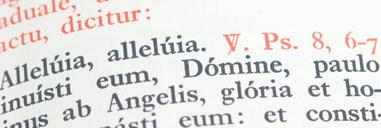
The long-awaited move by Pope Benedict XVI to relax restrictions on the use of the Tridentine Mass is a significant event in the life of the Church. The Holy Father has made no secret of his view that liturgical reform is a key issue facing the Church. Issuing his Motu Proprio on July 9, the Pope said Mass celebrated according to the 1962 Roman Missal, commonly known as the Tridentine rite, should be made available in every parish where groups of the faithful desire it. Anthony Barich and Paul Gray spoke to Australian clergy who celebrate the old rite about the significance of the announcement.
■ By Paul GrayLiturgically speaking, today’s young Catholics are in a similar position to Saffy, the daughter of the drug-addicted ex-hippie mother played by Jennifer Saunders in the TV comedy Absolutely Fabulous, a Melbourne priest has said. When given the opportunity to experience the beauties of the Church’s traditional liturgy as embodied in the Tridentine Mass, young Catholics are welcoming it and asking why they hadn’t been told about it before, Fr Glen Tattersall told The Record Fr Tattersall, a member of the Priestly Fraternity of St Peter, a Latin Mass community of priests, was commenting on Pope Benedict’s Motu Proprio of last weekend, in which the pontiff endorsed the use of the pre-Vatican II Mass throughout the worldwide Church. The Motu Proprio (meaning on the Pope’s own initiative) represents a major change in the liturgical life of the Church, Fr Tattersall said.
He said the major implication for Catholics in parishes is that

Being Heard
■ With John Heard
“Immediately after the Second Vatican Council it was presumed that requests for the use of the 1962 Missal would be limited to the older generation which had grown up with it, but in the meantime it has clearly been demonstrated that young persons too have discovered this liturgical form, felt its attraction and found in it a form of encounter with the Mystery of the Most Holy Eucharist, particularly suited to them.”
POPE BENEDICT XVI, LETTER TO BISHOPS SUMMORUM PONTIFICUM: ON THE USE OF THE ROMAN LITURGY PRIOR TO 1970
“P. Introibo ad altare Dei. S. Ad Deum qui laetificat juventutem meam.”
[P. I will go to the altar of God. S. To God, the joy of my youth].
FROM
they “are entitled to ask for this rite to be celebrated in their parish churches.” The parish priest, even if he is not particularly interested in the old Mass himself, is meant to make arrangements to accommodate such requests, Fr Tattersall said. According to the Pope’s text, “the pastor should willingly accept their requests.”
If these arrangements aren’t made, the lay people can then pass on the request to their Bishop. Ultimately, if still frustrated in their wishes, lay people who want the old rite can appeal their request all the way up to the Ecclesia Dei commission in Rome.
The Pope’s Motu Proprio has also changed the position in terms of Church law, Fr Tattersall said.
Before last weekend, the issue of whether the Old Rite had been abrogated by the promulgation of the New Rite of the Mass during the post-Vatican II era was still “a moot point.” Even Pope John Paul II’s 1998 decree which allowed the celebration of the traditional liturgy as a special privilege, had left the question of the legal status of the old Mass unclear. But since the Pope’s action last weekend, the

legality of the old Mass has now been made clear, Fr Tattersall said.
“Any priest can celebrate this Mass without permission from anyone,” he said. Pope Benedict has been concerned for many years about the new (post-Vatican II) liturgy of the Catholic Church “losing its moorings,” he said.
The problem the Pope sees is not the new liturgy itself but the way it has been put into practice in many places. On the question of whether the Motu Proprio was an attempt to mend fences with the breakaway group associated with the late French archbishop Marcel Lefebvre, Fr Tattersall said:
“Only in part.” Fr Tattersall, who is 43 and a regular celebrant of the Tridentine rite, said the ongoing success of Juventutum, a showcase for the traditional liturgy which was part of the last World Youth Day, highlights the old liturgy’s contemporary appeal.
He said that when the Pope’s Motu Proprio was announced at a national student gathering last weekend in Canberra, “there was spontaneous applause and cheering from the students”.
The Tridentine liturgy had been celebrated by Fr Greg Jordan SJ as part of the weekend gathering, a short time before the announce-
ment. “These young people have not been raised in the old Rite, but there’s a spontaneous reaction from them when they see it. They see this as something authentic, as part of their heritage,” Fr Tattersall said, adding that with initiatives like the Motu Proprio, the Pope is demonstrating the unusual connection he has been able to build with young people. Like the relationship between the conservative grandmother and the long-suffering granddaughter (Saffy) in TV’s Absolutely Fabulous, he is able to look young Catholics in the face and say: “I know what you have to put up with.”
It results from exaggeration surely, but many young Catholics have a distinct sense that things were better, purer, or else more beautiful ‘in the old days’.
In particular, the ‘Latin Mass, the ‘old Mass’, the ‘Tridentine Rite’ or the ‘Classical Roman Rite’ - all more properly known as the usus antiquior or the Roman Rite according to the 1962 Missal of Blessed John XXIII – has always seemed rather mysterious and therefore deeply attractive.
Known to young people primarily through its association with an ancient language and the remarkably uniform esteem of our elders, the way Catholics celebrated Mass for almost fifteen centuries remained, however, part of someone else’s glittering memories. It has not been a regular part of contemporary life.
That is about to change.
The Pope has liberalised (via a letter given in the form motu proprio) the use of the liturgical books written before Vatican II and young Catholics, on a scale previously unthinkable, will be increasingly exposed to the 1962 Missal.
We are ready.
Indeed, not a few of us have longed to experience the Latin Mass.
Certainly, listening to a sustained lament over the loss of certain ancient forms has meant that young Catholics have grown up with a nagging sense of liturgical inheritance denied.
Intense forty hours’ devotion, churches stuffed with flowers and candles, Benedictions with earringing Latin and eye-stinging incense, whispered prayers and booming hymns – all described a veritable phantasmagoria that was within cultural memory but usually outside contemporary experience.
In my own case, these generational feelings only intensified when, as a young boy, my mother let me have the Sunday Missal she had used at a convent school in the 1950s and ’60s.
Inside the worn, well-loved pages a haul of liturgical treasures, a rich catch of theological meaning, teemed.
My ‘Young Person’s Guide to the [New Rite of the] Mass’, a fairly hokey document, couldn’t compete.
The maniple, for instance, fascinated me.
Formerly worn by most priests at Mass, it was a vestment proper to a sub-deacon and therefore rare indeed after that order was suppressed post Vatican II.
The possibility that this piece of ostensible frippery, it is after all an ornamental handkerchief derived from a Roman soldier’s sweat towel, could after a little study prove to be rich with overlapping resonances – it turned out to be a symbol of Christ’s bound hands, to be associated with the tears of a sincere penitent and to be a reminder of the sufferings of the good priest and his eventual reward – opened something up.
I began to wonder why we had, as it were, thrown in the maniple. I was not alone.
Certainly, even before the Pope’s motu proprio, many young people had developed a sense of alarm about liturgical reform. Faced with what the Pope has called ‘arbitrary deformations of the liturgy’ in the years since Vatican II, young people have looked at the Catholic liturgical past and sometimes regretted the way our liturgical present fails to match up.
We are, after all, the generation who grew up with the Clown Mass, too many emcee-style priests and homoactivist protesters inside the cathedral.
That the 1970 Missal proved to be vulnerable in the hands of such people has been a cause of great concern but not a reason to doubt the Council itself. Rather,
it spoke to a necessary ‘reform of the reform’, an ongoing process of education and discipline, but not a reactionary break.
By liberalising the use of the 1962 Missal, the object is not then the scrapping of the ‘new’ Mass, rather a perfecting of the Roman Rite as a whole and a way of more perfectly implementing the teachings of Vatican II on the liturgy, in their entirety.
This is something the Pope makes very clear in a letter to bishops that accompanies his motu proprio.
By liberalising use of the Missal of 1962 the Church hopes to perfect the Missal of 1970 and encourage a ‘mutually enriching’ interaction between both the ‘extraordinary’ and ’ordinary’ form of the Roman Rite.
It is only natural then that, as the Pope rightly points out, many young people have felt the attraction of a liturgical form, the 1962 Missal, that has proven consistently profound and profoundly Catholic.
No longer to be considered ‘young fogeys’, the Pope’s move validates a more general feeling among young Catholics and will go some way to helping restore the liturgical wonder we long to encounter.


Perth’s Vicar General and Canon lawyer Fr Brian O’Loughlin says that in the Pope’s “Summorum Pontificium”, Benedict had in mind those to whom the Latin liturgy has had a profound attraction, but it will have little effect on the average congregation.
A Motu Proprio is a binding text for the Church, issued on the initiative of the Pope. Because the Motu Proprio “Summorum Pontificium”concerns only the Roman liturgy and the celebration of Mass and the Sacraments according to the Roman Missal, it binds only the Latin Rite. A letter to the Bishops accompanies the Motu Proprio, giving the reasons for the change, which amounts to the creation of an ordinary form or expression of the Church’s liturgical prayer, the Roman Missal of Pope Paul VI of 1970 and now the addition of an extraordinary form, the Roman Missal of Pope John XXIII. There is also an explanatory note from the Holy See’s Press Office which helps explain the Motu Proprio.
2. Latin
The Roman Missal of Pope Paul VI is the official liturgical text of the whole Latin Rite and may be used always and everywhere in that Rite. So it would be incorrect to say that the Motu Proprio restores Latin to the Church. It is and remains the typical text from which all translations are made. What the Motu Proprio does is restore the Missal of Pope John XXIII of 1962 as an extraordinary form. This change will have little or no effect on ordinary congregations.
3. The Missal
Pope John XXIII’s Missal predates the Vatican Council II and the liturgical changes the Council introduced. Among these were the concept and expression of full, conscious and active participation of the faithful in the Mass. The Missal of Pope John XXIII has only one Eucharistic Prayer, the Roman Canon. Much of this is prayed by the priest silently. There is no acclamation of faith after
the consecration. The prefaces are limited and there is no concelebration. The explanatory note from the Press Office says that the 1962 Missal says nothing concerning the direction of the altar or of the celebrant, i.e. whether facing the altar or not.
4. Lectionary
Another major difference concerns the lectionary, which is contained in the 1962 Missal. Whereas the Missal of Pope Paul VI has a separate lectionary, based on a three year cycle for Sundays and two years for weekdays. In this way, almost the whole of the Bible is read over that three year cycle. This was one of the out-standing changes of the Pope Paul VI lectionary, it put Catholics in touch with the whole Bible. So remarkable was this presentation of the Sacred Scriptures, that most Protestant churches now use the Catholic lectionary, no doubt with some adaptations.
5. The celebrant
The Motu Proprio permits any priest of the Latin Rite to use either the Missal of Pope Paul VI (the ordinary form) or the 1962 Missal whenever he celebrates Mass without a congregation (Art. 2). This broadens a concession of Pope John Paul II and makes it part of extraordinary form of celebration in the Latin Rite. The priest who uses the 1962 Missal must be qualified to do so (Art. 4). This applies to any day other than the Easter Triduum (Art. 2). For Australia and some other countries, where the Chrism Mass is anticipated on the Tuesday of Holy Week, this would be celebrated according to the Missal of Pope Paul VI.
6. The faithful
Christ’s faithful may be admitted to the celebrations of those priests who exercise the right to celebrate the Mass using either Missal. Presumably these faithful
Latin for ”on his own initiative,” it appears in documents coming directly from the pope signifying his personal interest in the topic. The first was issued by Innocent VIII in 1484.
NUMBER ISSUED BY
Benedict XVI 5
John Paul II 24
Paul VI 43
John XXIII 2
Pius XII 3

DOCUMENTS ISSUED ‘MOTU PROPRIO’

John Paul II

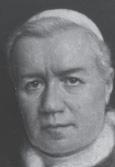


should allow celebrations in the extraordinary form for special circumstances such as marriages, funerals or occasional celebrations i.e. pilgrimages (Art.3).

9. Limits

Jan. 10, 2002
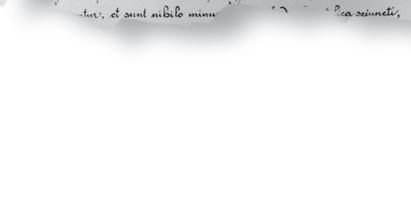

“Sacramentorum sanctitatis tutela” establishing new guidelines for dealing with priests accused of sexual abuse.
“Ecclesia Dei” excommunicating Archbishop Marcel Lefrebvre and four illicitly ordained bishops for their disobedience.
July 2, 1988
Paul VI

“Sacrum Diaconatus Ordinem” restoring the permanent diaconate in the church.
June 18, 1967
Pius X
“Tra le sollecitudini” outlining regulations for sacred music
Nov. 22, 1903
Source: CNS reports and www.vatican.va
understand their participation will be restricted by the format of the 1962 Missal. They are to ask to attend these celebrations of their own free will.
The readings may be in the vernacular, using editions recognised by the Apostolic See (Art.6). The 1962 Missal concluded the Mass with the reading of the Prologue of St. John’s Gospel.
7. Parishes
In parishes where there are a stable group of faithful who adhere to the earlier liturgical tradition, the parish priest should willingly accept their requests to celebrate Mass according to the 1962 Missal.
This is to be done in harmony with the ordinary pastoral care of the parish while avoiding discord and favouring the unity of the whole Church (Art.5 #1). On Sundays and feastdays only one Mass according to the 1962 Missal may be celebrated (Art.5 #2).
8. Sacraments
The parish priest, after considering all aspects, may grant permission to use the earlier ritual for the administration of the sacraments of baptism, marriage, penance and anointing of the sick, if the good of souls would seem to require it (Art.9 #1). For faithful and priests who request it, the parish priest
In the Pope’s letter to the Bishops which accompanies the Motu Proprio, the Pope notes that the use of the old Missal presupposes a certain degree of liturgical formation and some knowledge of the Latin language; neither of these is found very often. Already from these concrete presuppositions, it is clearly seen that the new Missal will certainly remain the ordinary form of the Roman Rite, not only on account of the juridical norms, but also because of the actual situation of communities of the faithful.
Pope Benedict has responded to the expressed wishes of those who lamented that the traditional Latin liturgy was not generally available. He has in mind particularly those priests for whom the traditional Latin liturgy had a profound attraction. He hopes that the followers of Archbishop Lefebvre, for whom fidelity to the old Missal became an external mark of identity, will take this opportunity to return to full communion. The Pope acknowledges that the reasons for their break from unity were at a deeper level. In granting this concession, the Pope reminds the priests of the communities adhering to the former usage (they) cannot, as a matter of principle, exclude celebrating according to the new books. The total exclusion of the new rite would not in fact be consistent with the recognition of its value and holiness. Finally, the explanatory note that accompanied the Vatican’s release of the Motu Proprio, states that the Pope envisages the possibility of future enrichment of the 1962 Missal, by the addition of feast days of new saints, eg. for Australia, Blessed Mary Mac Killop or the Vietnamese, Korean, Ugandan or Spanish Civil War martyrs or new prefaces. Such additions would be similar to those made by Pope John XXIII in 1962, when Good Pope John added St. Joseph’s name to the Roman Canon.
This will sock you in the solar plexus if you open your heart■ By Anthony Barich
Pope Benedict XVI’s decision to relax restrictions placed on the Tridentine Mass will renew the Church’s numbers and the devotion of Catholics around the world, according to Jesuit intellectual heavyweight Fr Gregory Jordan.
Fr Jordan, who has led Brisbane’s Latin Mass community for 10 years at St Gregory’s, said Catholics brought up post-Vatican II would be surprised at its power.
“I think it will establish stronger, more devout, prayerful and faithful Catholic tradition,” said Fr Jordan, who taught Sydney Auxiliary Bishop Anthony Fisher and Federal Health Minister Tony Abbott at St Ignatius’ College, Riverview NSW.
Fr Jordan, also national chaplain for the Australian Catholic Students Association, told a Congress run by the student group
last weekend that while Latin “is not necessary for salvation”, it enhances the experience of the Mass that is focused on prayer.
In his experience, he has found that people are almost invariably hit by a strong spiritual experience when they experience the Latin Mass, saying, “it socks you in the solar plexus”.

He said that at present, Latin Mass communities are established, rather than being prominent. But as a result of the Pope’s Motu Proprio, “the average Catholic will start to stumble on this”.
“Some will stay, some will leave it. But whatever the case, it will sock them in the
solar plexus. There’s something about it – the majesty, the awe, the reverence, the order, the propriety of it focuses on God.
“The focus (of the Latin Mass) is not on community. My congregation, many of them young, is a fabulous community – I never mention the word, but when you get things right with God, everything else falls into place,” Fr Jordan said.
He dismissed fears that any difficulty in understand Latin would affect the power of the Mass.
“There’s not a word used in the Latin Mass which they haven’t got in the vernacular in front of them (in a booklet), he said. “The standard response, the dialogue with God, like ‘Christe Eleison’ (which is Greek), the average person picks that up quite rapidly, and it’s not an issue. Obviously the readings that change week to week, you’ll have to know Latin for that, but it’s surprising the
number of people of all ages, right down to school pupils, who are learning Latin.”
Fr Jordan said there are moves underway to teach Latin exclusively through the Mass, using the language, vocabulary, grammar and numbers. “Therefore it’s quite practical, and it’s admirable for people who have come to this (studying Latin) late,” he said.
Fr Jordan conceded there would still be some Catholics hostile to the Mass, “but it’s their loss”.
“This (Latin) Rite could not have done what it did for all those centuries (over 1500 years) without offering something substantial,” he said.
“This is what made saints – people died for it under Queen Elizabeth.”
While conceding the Mass is all about the Consecration of the Body and Blood of Christ, that does not diminish the heightened sense of prayer the Latin Mass brings.

“How do people know what’s happening, if Mass is in Latin?” is a question I often get asked, when people discover that I say the Traditional Latin Mass. Understanding the Mass is more than just understanding the words.
A baby knows its mother’s love through her actions - even though it cannot understand a word she is saying. In the same way the Latin Mass shows the Church’s love for God in its ancient rituals and actions which express the belief of the people in something greater than themselves.
Part of the problem with the modern world is alienation of beauty, reducing everything to an empirical equation without going beyond what it can see merely on the surface.
The Traditional Latin Mass expresses beauty and mysteries beyond ourselves, so if we pray the Mass well we are caught up in its beauty and mystery.
To this end a person can follow the Mass using a missal with the translation in English or just by kneeling quietly, and contemplating the deeper mysteries that are unfolding.
People need the sense of divine, from which they can often be alienated in a world of concrete and glass.
Ordained in 1994, I was appointed Latin
Mass chaplain by the Archbishop to provide the Mass and Sacraments according to the 1962 books, and meet the pastoral needs of Catholics attached to the Traditional liturgy.
I offer daily Mass at St John’s Pro Cathedral, Western’s Australia’s oldest Catholic Church (construction commenced in 1836).
The 9.15am Mass on Sundays is a sung Mass, with the congregation taking an active part in singing the Gregorian Chants, in fulfillment of the wishes of the Second Vatican Council. The Chaplaincy has a special interest in preserving the Church’s rich musical heritage, with regular use of Gregorian Chant, Renaissance polyphony, and works of more modern composers, including New Norcia monk, Dom Stephen Moreno.
The Latin Mass Chaplaincy, however, extends beyond providing the Mass and sacraments: I offer Catechism classes for adults and children, Ignatian retreats, youth camps, pilgrimages (to Gin Gin, Bindoon, New Norcia, York, Bunbury – among other places), and fundraisers for the Missions.
The chaplaincy’s football matches have proven popular, with matches played against both the Cathedral and Kelmscott parishes so far. Next year, a group of young people who attend the Traditional Mass will travel to Sydney to see the Pope when he visits Australia as part of a larger group with Willagee Parish.
I foresee a bright future for the Traditional Latin Mass in the Archdiocese.

It has been said that the Latin Mass only appeals to nostalgic senior citizens who experienced the Latin Mass in their child-
hood but in my experience, this clearly is not the case.
Many young people and young families
Comment on global warming stirs a strong response from readers on both
Sometimes Catholic people need to speak out about the ignorance and callousness that comes out of their own communities. I find this to be one such ocassion.
The headline article published in the discovery magazine is one of the reasons Catholics should become more educated on global warming issues.
Speaking as a Catholic, this article displays a level of ignorance and disregard for basic human justice that leaves me feeling dismayed about our Church. How could such an article be distributed to Catholic families and schools throughout Perth parishes?
The theme of the article is that global warming is an “irrelevant” issue that should not bother us greatly. The article proposes that there are more “serious problems” such as poverty and famine in Africa. The ignorance and deliberate distortion promulgated by the author of this article, Mr Peter Rosengren, is breathtaking. Why? Because one of the major causes of death in Africa is lack of reliable drinking water.
Global warming is closely associated with this lack of drinking water.
Here are some further facts that might cause us to think a little more intelligently about the connection between climate change and poverty and death in Africa.
● The American mission group Christian Aid estimates conservatively that, “an average global temperature increase exceeding 3ºC could cause 182 million deaths in Africa this century and leave 750
million additional hungry people in Africa and Asia.”
● One of the worlds largest fresh water lakes is drying up leading to hunger and extreme poverty and death among many thousands of families who depend on it for food and livelihood.
● Kenya has been through its worst drought in 60 years, 2001. Over four million people were affected by a severely reduced harvest, weakened livestock, and poor sanitary conditions.
● In Tanzania, Kenya and other Sub-Saharan states malaria is expanding into mountain regions due to higher annual temperatures from global warming. Many thousands have died as a result.
● Women through Africa are needing to spend more and more time walking every day to find drinking water and this is expected to increase dramatically in coming years as surface water in many countries becomes less prevalent.
Climate change is causing dislocation and misery in Africa on a very large scale and this will grow as climate change due to human activity accelerates. Mr Rosengren is insulated from that misery because he lives comfortably in Australia and chooses to remain ignorant about the impact of environmental change on the lives of third world populations.
If we want to help the people of Africa we might start by doing something about climate change. Australia and Africa share a global climate. Change in our own backyard is a change that supports the global climate. Catholics need to support the world-wide attempt to combat climate change and the short-sightedness that produces it.
At its heart the climate change issue is about justice. Justice for
people who live close to the land and who are most affected by environmental changes.
Global warming is impacting on subsistence farming economies and on third world communities whose livelihoods depend on the regularity of seasonal rains. Its impacting on equatorial countries through the spread of malaria and on the world’s poor through drought and disruption to food production and water supply is serious now and will become more so as each year passes.
The issues of global warming and third world poverty are closely linked. That Catholic people, young and old, are reading Mr Rosengren’s article and being influenced by his views is of great concern to me and, I’m sure, to many other Catholics. I find it reprehensible that such articles are circulated widely through the Catholic community.
Mark Edwards KarrinyupHypocrite. You carry on about the money we spend on DVDs whilst people are starving, yet your paper has six full pages of advertisments for grossly overpriced books and DVDs.
I have never bought a book or DVD in my life. I go to the free library. If I had that sort of money left at the end of each month I would sponsor a third world vision child. Not to mention people who buy books are wasting the Earth’s precious natural resources, creating more emisions in the manufacturing process and creating more land fill.
My husband, children and I travel to Africa annually to drill
holes for water and set up pumps. We donate to World Vision every month from our very modest income. AND YET, AT THE END OF THE DAY, we still have enough energy and love in our heart to be very conscious of the amount of power we use and the amount of carbon emissions we alone are responsible for. We are so in awe and respectful of this planet that God has made for us and how incredibly delicate it is.
Poor, poor you. I feel so sorry for you and your selfishness. I am so sorry that you do not have enough love in your heart to care for the millions of environmental refugees who’s homes are shrinking every day and will soon be under water because of global warming and rising sea levels?
I thank God that Governments like ours and New Zealand have agreed to allow these displaced people into our country because their homes are disappearing.
How tragic it is that these people are having to leave their homes as we speak, because they have no work on their islands anymore, no income and therefore no food for their families.
These people have lived on these islands for thousands of years and they are having to leave them behind, because of the destruction we affluent nations have caused to their environment!
I am so sorry, having read this newspaper for the very first time, that there is allowed to be someone who is so one-eyed, uncaring and unchristian writing for it. I am so sorry that your love and concern cannot extend enough to care for this beautiful planet that God has given us.
Carbon emissions and the destruction of forests cause global warming. Have you ever thought
of the ramifications of drought and global warming on nations like Africa? How will that help their cause when it comes to growing crops and feeding stock?
I pray that God forgives you for your disrespect and one-eyed anger, and helps you extend your heart to all that is needed in this world. My question to you; what are you doing to help those starving in developing nations?
God forgive you. Stop poisoning Christians with your narrow mindness.
Name supplied
Well done, Peter Rosengren, on a great article on global warming (discovery, July ‘07, p. 10), with which I thoroughly agree. No “dolls stuck with pins” from me, at least, but I have a couple of extra points to add, if I may.
While millions die of starvation, and other preventable diseases, around the world, more than an average of one baby per second dies at the hands of abortionists in this same world: Not enough said, or done, about the former, and nothing said, or done, (at least in the secular media) about the latter.
And while we have “summits” and “caucuses”, “protocols” and “declarations” on greenhouse gas emissions, carbon trading and the like, nations also see fit to spend billions of dollars on space exploration.
They really seem to believe that these space expeditions will somehow improve the lot of mankind on earth. How it will happen is beyond me. And even if the Mars

attend the Mass at St John’s and are actively involved in altar serving, choirs, and many other activities.
The attractiveness of the Traditional liturgy to young people is recognised by Pope Benedict in his letter to bishops which accompanied the Motu Proprio, Summorum
Pontificum: “....it has clearly been demonstrated that young persons too have discovered this liturgical form, felt its attraction and found in it a form of encounter with the Mystery of the Most Holy Eucharist, particularly suited to them.”
Already this year I have had four young
VATICAN CITY (CNS) - Here at a glance are the central points of Pope Benedict XVI’s July 7 letter and norms for the wider celebration of the Tridentine Mass using the Roman Missal of 1962. The norms take effect on September 14:
● The current Roman Missal, published after the Second Vatican Council, continues to be the “ordinary” form for celebrations of Mass in the Latin-rite church. The 1962 missal is now considered the “extraordinary” form of the Mass.
● Any priest can celebrate Mass in private using the 1962 missal, except for the Mass of the Lord’s Supper on Holy Thursday, the Good Friday commemoration of the Lord’s Passion and the Easter Vigil, which always must be celebrated with a congregation.
● Catholic laypeople may attend a priest’s private Mass using the 1962 missal.
● If a recognised group of Catholic laity asks its parish priest to celebrate Mass according to the 1962 missal, he should do so. The 1962 missal can be used for Mass on any weekday, but no more
than one Tridentine Mass should be celebrated in a given parish on Sundays.
● The 1962 missal can be used for baptisms, weddings, funerals and anointing of the sick, if the faithful request it.
couples who have married in the traditional liturgy because of their love of this ancient form. In fact, the night the Motu Proprio was released, I received many phone calls from excited young people who were looking forward to a greater availability of the Latin Mass in its traditional usage.
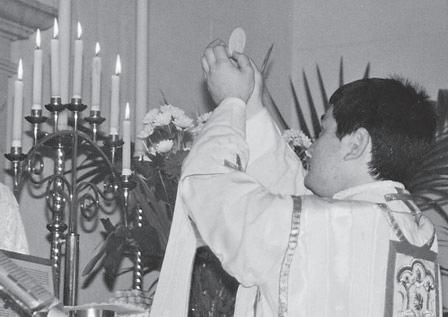
● Even when the 1962 missal is being used, the readings can be proclaimed in the local language using a Lectionary, or book of Mass readings, recognised by the Vatican.
● If a parish priest refuses laypeople’s request for celebration of the Tridentine Mass, the laypeople should turn to their bishop for assistance. If the bishop has difficulty fulfilling their request, he should seek advice and help from the Pontifical Commission “Ecclesia Dei,” which is responsible for coordinating pastoral care to Catholics attached to the Tridentine Mass.
● Bishops may celebrate the sacrament of confirmation using the rite that was in effect in 1962; the rite is found in a book called the “Roman Pontifical.” CNS
Although the Holy Father’s motu proprio may see the spread of the Latin Mass in Perth to a number of parish settings there are two centres at the moment providing for the needs of those who seek to attend its celebration.
St John’s pro-Cathedral located in Victoria Square and just down the hill a few metres from St Mary’s Cathedral has, for quite a few years, provided the Mass in Latin according to the 1962 Missal, usually celebrated by Fr Michael Rowe, the chaplain for the Latin Mass in the Archdiocese of Perth.
Another celebration of the Latin Mass has also been celebrated for some years in the southern suburb of Palmyra by Fr Francis Ughanze, Parish Priest of Our Lady of Fatima Parish.
Three Masses are offered each Sunday at St John’s pro-cathedral, including an early, mid-morning and midday Mass (see below). Mass is celebrated at Palmyra every Sunday at mid-day.
Those interested in participating in these celebrations or obtaining further information can contact either of these priests on the numbers provided.
Fr Francis Ughanze Our Lady of Fatima, Palmyra 12pm Midday every Sunday
Further info (08) 9339 1298
Fr Michael Rowe
St John’s Pro-Cathedral, Perth 7.30am, 9.15am, 11.15am every Sunday
Further info (08) 9444 9604
probes were to find that elusive sign of basic “life” on Mars, just what will it prove?
Mrs C.V. Phillips Canning Vale
Further to your article in last weekend’s discovery, I think there is one essential fact that you have overlooked: That is that a good deal of the failed crops, subsequent famine and wars that are the cause of world poverty are caused by global warming and the consequent climate change. If you are concerned about global poverty, you should be concerned about global warming.
Anne TaylorThe limits of email
How limited is this email thing - why can’t I get a real pin-encrusted doll to you for your terrible politically incorrect column about global warming? Takes all the fun out of it if you ask me. Nice to see some sense about global warming - the rich world’s current guilt trip. We’re over nuclear winter and world war 3 and the environment, it seems, so now we have to scare our kids silly with global warming. Human beings need to feel guilty about something don’t we? If only it was about the right things. I keep telling my kids it isn’t that kind of heat we have to worry about, but the kind we might feel in the next life if we don’t love our neighbour in this one (and do
what mum says all the time too of course).
Keep up the good work.
Name supplied
Just read your article on the global warming. Pretty ignorant I think.
You accuse people that are worried about the environment to be worried about something that is not even relevant to the world today. I wonder if we had paid more attention to the issue of the world that you talk about in your article all long time ago that we might be in a better situation these days, that starvation and brutality to people is not such a problem.
I assume that you have your theory on global warming as being ‘a complete irrelevancy’ (as you said in your article) because it has no immediate relevance to any of us now so why worry about the future people? The future generation is not important. Thats a really selfish opinion I think!!
Your article has made me so mad. Your front cover leads people to think that there is no problem. How would you like it if someone put your starving child photo on the front page of a magazine and said not to worry about these people because they are fine.
You should be happy that there are people that care about global warming and that they are actually concerned about something. Maybe your opinion should focus more on those people that don’t care about starving children or the world.
I care about global warmingwhich doesn’t mean that I don’t care about starving people.
I appreciate that you are trying to send a message to governments around the world that we have a problem NOW too - but you don’t have to target people who care about the future generation and the type of world that they may live in. Good work for really writing something that actually helps your cause!
Anon.
It’s really disappointing to read your Comment on page 10 of the July 2007 discovery issue. Comments like yours, what will they really achieve? As a journalist, I’d rather spend my time writing pieces that will make a difference.
As a parent, Catholic, humanitarian and nature lover, I can’t understand why you’d advocate that we ‘get a grip’ on global warming issues.
You say we should address the serious issues facing the world now. Well, I’ll tell you that climate change is a serious issue we must address today, not in ten years time when it’s too late.
As for poverty, if Mr James Packer donated what he’d paid for his wedding to the poor, there’d be one happy nation which would wave goodbye to poverty forever. That’s a nice little angle you might have gone with.
Poverty is a human problem that can be turned around if everyone stopped being so greedy. It can be stopped almost immediately if global action is taken to help those in need. Global warming on the other hand has come about because of the human way of life, and is also reversible. But you can’t feed nature back to health and hap-
piness, hence the urgent need to address it now. See the issue of poverty is one which requires a global government commitment. It’s not something the average Jo is able to change. Even organisations such as World Vision see only a fraction of their proceeds reach the countries they promise to relieve – that’s another good angle you might want to research for your next comment.
At the end of the day, if you want to make a point about human poverty in this world, do it. But don’t do it by playing down the significance of another very important global issue. That’s bad writing – not to mention it’s short sighted and ignorant. My daughter attends a Catholic primary school and brings discovery home regularly. I would not want her reading your comment as it is an ill-informed piece of writing which certainly does not warrant front page advertising. As the editor you should be encouraging every family to make this world a better place, whether it be switching off the lights to reduce carbon emissions or taking in food for St Vinnies Winter Appeals in the classroom.
I would suggest an apology in the next issue might be appropriate, for your inappropriate suggestions to ignore the issue of global warming until we get more serious about addressing ‘more important problems’.
Jordyn Rados JournalistYour page 10 article in the July issue of’ discovery’ was a disturbing and time-
ly reminder of the stark contrasts in the wellbeing of people across the world and of the lack of focus on action to address this dreadful situation.
For instance, how long is it since we heard anything of progress on achievement of the UN’s’ Millenium Goals’ which, if I remember rightly, world governments - including ours - signed up to as a practical way of improving this state of affairs?
What does Australia’s report card look like on this? Why isn’t it an issue in the current runup to the Federal election?
What is the Media doing to raise it’s profile? Perhaps we have all let these questions ride for a while!
At the same time, your call to be unworried by ‘global warming’ was, in my opinion, a misguided tactic to adopt at a time when the community, the electorate and the World need to be taking this matter very seriously indeed.
The British Government’s climate change expert - in Australia recently - , this year’s report from the UN’s scientific group and all Australian political parties - let alone Tim Flannery in his book’ The Weather Makers ‘- are agreed that ‘global warming’ is real and that action is imperative; we will ignore or downplay this at our peril - and our grandchildren will be affected by it more than us - we have a duty to them if not to ourselves!
So, Peter, please don’t throw out the baby with the bathwater; there are TWO important issues here. What about trying to liven up the debate about the ‘Millenium Goals’ and, at the same time, put the spurs in on ‘global warming’?
John Magee Yokine
Continued from page 8 States, who speak about their parents and their grandparents, they are confident that they became Christians not because they wanted the economic advantages. “They did it because they believed the message of Jesus is more hopeful and corresponds more to the needs of the human heart than what they experienced before,” he said. The Archbishop was recently principal celebrant at a Mass
in Washington DC during the Tekakwitha Conference Mass where he urged people to pray for the canonisation of Blessed Kateri Tekakwitha, a 17th century American Indian laywoman.
“With all the talk about inculturation, it is important to remember that the people who help us to do that best are not theologians, nor are they bishops, but saints,” Archbishop Chaput said.
“Someone like Blessed Kateri, in
her person, embodied the meaning of the Gospel with the culture of the people. And she was personally transformed into a saint, as the Gospel is supposed to do for all of us. The process with native cultures is exactly the same as the process with contemporary post-Christian culture. The Church shouldn’t apologise for speaking the truth in a post-Christian culture. Nor should the Church apologise for speaking the truth to indigenous
Tocelebrate the new, reduced advertising rates and kick off the new financial year The Record is offering a big incentive on small advertisements. This is a great advertising idea for businesses, events and public notices. During July, all you’ll pay for an advertisement 49mm x 65mm is $40*. This is a limited offer and will only be available during July, 2007.
See page 14 for more details.
A range of designs are available and our friendly staff are available to answer any queries. For an information sheet email administration@therecord.com.au, or ring Justine on (08) 9227 7080.








- supporting small businesses - supporting our local community - supporting our Church * Subject to conditions. Call The Record for more details - (08) 9227 7080. Price includes
Sunday July 15
TAIZE MEDITATIVE PRAYER
7pm Sisters of St Joseph Chapel, 16 York St, South Perth. Come and join in the prayer, song and silence. Bring your friends and pray in a candlelit chapel. Enq: Sister Maree Riddler 0414 683 926.
Monday July 16
SOLEMNITY OF OUR LADY OF MT CARMEL
A solemn Concelebrated Mass will be offered at the Carmelite Monastery, 100 Adelma Rd. Nedlands, at 11.30 a.m. Archbishop Hickey will be the principal Celebrant. All are most welcome to the Mass and light refreshments afterwards.
Thursday September 13 & Sunday 16
CURSILLO FOR WOMEN
7pm Thursday and 5pm Sunday. Held at ‘Penola by the Sea’, 27 Penguin Rd, Safety Bay. For application forms and/or further information please phone Jeanie Hoff on 9531 3842 or 0421 725 508.
Wednesday July 18
TAIZE MEDITATIVE PRAYER
7.30–8.30pm at St Thomas More Catholic Church, 100 Dean Road, Bateman. All are welcome to come and spend an hour in Group Prayer and relax after a busy workday in a candlelight atmosphere of prayer, song and meditation. Enq: Daisy/Barney 9310 4781.
Friday to Sunday July 20 – 22
SEPARATED, DIVORCED, WIDOWED
Beginning Experience is running a weekend program designed to assist and support people in learning to close the door gently on a relationship that has ended, in order to get on with living. The
next weekend program will be held at Epiphany Retreat Centre, 50 Fifth Avenue, Rossmoyne. Enq: Bev 9332 7971 or Margaret 9294 4892.
Saturday July 21
ULTREYA
2pm. Come and join us for a happy and interesting afternoon at St Thomas More Parish Centre, 100 Dean Road, Bateman. Afternoon tea provided. All welcome.
Sunday July 22
THE GIFTS OF WOMEN
The Council for Australian Catholic Women (CACW) Perth is holding a forum. Stephanie Woods a Maranatha lecturer will discuss the special gifts of women and their discernment in light of Vatican documents and scripture, followed by group discussion. To be held at Mary MacKillop Centre York St, South Perth, 2-5pm Cost $5, unwaged gold coin. RSVP Michelle 93452555/michelleww@iinet.net.au All welcome.
Monday July 23
NEW LIFE IN GOD’S SPIRIT SEMINAR
For those who attended the seminar at Whitfords Church and those interested in starting a Charismatic Prayer Group in their Parish we are holding an information morning at St Gerard Majella ‘White House’ 36 Changton Way, Westminster at 10am12pm. Please contact Jenni Young of Healing Fire Burning Love Ministry 94445 1028 or 0404 389 679.
Friday July 27
MSGR PETER MCCRANN 50TH ANNIVERSARY
Holy Trinity Parish Embleton are celebrating 50
cultures. If there is a lack of respect for individuals, or peoples, then there is need of the appropriate apology, because it is an essential part of the Gospel to respect the dignity of people.”
He praised the clarity and depth of teaching exemplified by Pope Benedict XVI, and said that crowds coming to hear the Pope at his weekly Wednesday audiences in Rome are now bigger than they were under Pope John Paul II.

years of Priesthood for Monsignor Peter McCrann with Eucharist at 7pm followed by refreshments in the hall afterwards. Friends and former parishioners are invited to join us. RSVP: Sunday July 8 9370 4361.
Saturday July 28
COURSE ON THE GIFTS OF THE HOLY SPIRIT
The Holy Spirit of Freedom Community is conducting a five week course on the different gifts of the Holy Spirit from 10.30am – 12.30pm at HsoF Prayer Meeting, St Anne’s Church Hall, 11 Hehir St, Belmont. For further details contact Peter or Bridget on 9475 0155, email HsoF Community at hsofperth@gmail.com.
Saturday July 28
MEDJUGORJEMORNING OF PRAYER
A morning of prayer with Our Lady, Queen of Peace at St Bernadette’s Church, Glendalough, commencing 10am. Adoration, Meditation and Rosary. 11.30am Holy Mass Celebrant Rev. Fr. Tiziano Bogoni. Concluding with shared lunch at LJ Goody
Bioethics Centre, 39 Jugan St. Bring plate, tea/ Coffee supplied. Enq: Margaret 9341 8082.
Sunday July 29
CATHOLIC DOCTORS’ ASSOCIATION WA
Annual Day of Reflection. Directed by Dr Peter Hung Tran CssR. All Catholic health care professionals are welcome. LJ Goody Bioethics centre, 39 Jugan Street, Glendalough, 10am start, concluding at 3pm with Mass. Bring own lunch. Hot & cold drinks provided. RSVP 24 July 9242 4066.
Wednesday July 25
THE JULIAN SINGERS
Do you like singing and music? Third term begins 25 July on Wednesday nights from 7.30pm - 9.30pm at 36 Windsor Street East Perth. We will be performing “A Musical Preparation for Christmas’ on 18 November. We welcome all interested people. Enquiries to Chris 9276 2736 and Angela 9275 2066.
Panorama entries must be in by 5pm Monday. Contributions may be faxed to 9227 7087, emailed to administration@therecord.com.au or mailed to PO box 75, Leederville, WA 6902.
Submissions over 55 words will be edited or excluded. Inclusion is limited to 4 weeks. Events charging over $10 constitute a classified event, and will be charged accordingly.The Record reserves the right to decline or modify any advertisment. Please do not re-submit Panoramas once they are in print.
Friday August 3
CATHOLIC FAITH RENEWAL PRAISE AND WORSHIP
7.30pm St John and Paul’s Church, Pinetree Gully Road, Willetton. A talk will be given by Fr Richard Rutkauskas followed by Thanksgiving Mass. Light refreshments after Mass. All welcome to attend and we encourage you to bring your family and friends to this evening of fellowship. We look forward to seeing you there. Enq: Rita 9272 1765 or Rose 0403 300 720.
Friday to Sunday August 3 to 5
WEEKEND RETREAT FOR WOMEN 1935
Theme: Finding the Treasure; Discovering the Gift Within. How do we discover where God is calling us? By taking time out, listening to God’s call in the quiet and reflecting on Scripture. Commencing 7pm Friday concluding with Eucharist 10am Sunday 5th. Further Details 9527 2101 (between 9-5) Sr Anne 0409 602 927.
Saturday August 4
DAY WITH MARY
9am – 5 pm St James Church, 69 Lagoon Drive, Yanchep. A video of Fatima will be shown at 9am followed by a day of prayer and instruction based upon the messages of Fatima. Includes Sacrament of Penance, Holy Mass, Eucharistic Adoration, Sermons, Rosaries, Procession of the Blessed Sacrament and Stations of the Cross. Please BYO Lunch. Enq: Franciscan Sisters of the Immaculate 9250 8286. Bus Available Contact Nita 9367 1366.
Saturday and Sunday August 4 and 5
La Salle College
The Year 11 drama production of Shakespeare’s Much Ado will be held in the Nicholas Barre Auditorium at La Salle College, 5 La Salle Avenue, Middle Swan. Bookings have opened and tickets can be purchased from the College Administration Office or contact 9274 6266 for ticket bookings. Tickets are: $9 adults, concessions $7, Family tickets are available.
Sunday August 5
DIVINE MERCY
An afternoon with Jesus and Mary will be held at St Joachim’s Church, cnr Shepperton Rd and Harper St Victoria Park at 1.30pm. Program: Holy Rosary and Reconciliation. Sermon: Fr Michael Rowe, followed by Divine Mercy Prayers and Benediction. Afterwards refreshments in Parish Hall then Video with Fr John Corapi. Enq: John 9457 7771 or Linda 9275 6608.
Tuesday August 21 – Sunday December 2
SET MY PEOPLE ON FIRE
7.45 pm St. Anthony’s Parish, 96 Innamincka Road, Greenmount, 15 weekly Bible sessions for Building a Faith Building Community - Living Life in the Word called “Set My People on Fire.” Presented by Perth Catholic organisation Flame Ministries International featuring international speakers and the Flame Music Ministry. Each Tuesday evening with a Friday to Sunday weekend every 5th week. Free admission - Information: (08) 9382 3668Email: smpof@flameministries.org - Program: flameministries.org/smpof.html.
First Sunday of Each Month
DEVOTIONS IN HONOUR OF THE DIVINE MERCY
The Santa Clara Parish Community welcomes anyone from surrounding Parishes and beyond to the Santa Clara Church cnr of Coolgardie and Pollack Streets Bentley. The afternoon commences with the 3 o’clock prayer, followed by the Divine Mercy Chaplet, reflection and concludes with Benediction.
YCS PAST MEMBERS
Have you ever been involved in YCS and are interested in what YCS is doing in 2007? Or would you like to regain contact with friends from your YCS days? If so please email Vicky Burrows at the YCS Office at perth@ycs.org.au or call 9422 7911 so that we can put you on our data base to receive updates about YCS and past members.
Every Saturday
PERPETUAL HELP DEVOTIONS
4.30pm. The half hour Perpetual Novena Devotions to the Mother of Perpetual Help continue each Saturday at the Redemptorist Monastery Church, 190 Vincent Street, North Perth. Reconciliation available before and after the Devotions. All welcome. Every Sunday
BULLSBROOK SHRINE
Sunday Pilgrim Mass is celebrated with Holy Rosary and Benediction of the Blessed Sacrament 2pm at the Shrine of the Virgin of the Revelation, 36 Chittering Road, Bullsbrook. Reconciliation is available in Italian and English before every celebration. Enq: Sacri 9447 3292.
Every Sunday RADIO GATE OF HEAVEN
7.30-9pm, 107.9FM. 1. Council of Faith II w/Fr John Triglio “The Christian Faith and Demonology”. 2. The Web of Faith w/Fr Robert Levus & Fr John Triglio “Answering your questions as they come in”.
Every Sunday LATIN MASS
The Latin Mass according to the 1962 Missal is offered every Sunday at Our Lady of Fatima, 10 Foss Street, Palmyra at 12noon. All welcome.
Every Fourth Monday SCRIPTURAL PRAYER PROGRAM
7.30-9pm Venue from July 23 St Mary’s Parish Centre, 40 Franklin St Leederville. The Council for Australian Catholic Women (CACW) is offering a Scriptural Prayer Program developed in the Jesuit tradition. This form of prayer can lead to more reflective living, greater spiritual depths and promotes lay spiritual leadership in the Church. Led by Kathleen Brennan (ibvm). Enq: Michelle Wood 9345 2555.
Every Tuesday WEEKLY PRAYER WITH MARY’S COMPANION WAYFARERS OF JESUS THE WAY
7pm St Mary’s Cathedral Parish Centre, 450 Hay Street, Perth. Personal healing in prayer, Rosary, Scripture, meditation, praise in song, friendship and refreshments. Appreciate the heritage of the Faith united with others asking Jesus and Mary to overcome burdens in life. Prayer is powerful. Come, join us!!
Every Wednesday ADORATION
Adoration followed by Evening Prayer and Benediction. 1pm-5.30pm St Thomas Church, 2 College Road, Claremont. Personal prayer before the Blessed Sacrament is Adoration of Jesus’ gift of himself, of His love for you for your loved ones and for our world. Come and thank him.
Every Second Wednesday FORTNIGHTLY BIBLE REFLECTIONS
Workers in the Garden of the Holy Family are conducting Bible Reflections at St Mary’s Church, Parish Centre, 40 Franklin Street, Leederville. Commencing 7pm with Rosary, refreshments provided afterward.
Dates: July 25, August 8, 22, September 5, 19, October 3, 17, 31, November 14, 28, December 5. Enq: 9201 0337.
Every Fourth Sunday SECULAR FRANCISCAN ORDER
The Perth Fraternity of the Secular Franciscan Order no longer meets at the Pro-Cathedral but instead assembles every fourth Sunday at 2.30pm in the Chapel of RSL Care, 51 Alexander Dr, Menora. Enquiries John 9385 5649.
Every 4th Sunday of the Month HOLY HOUR FOR VOCATIONS TO THE PRIESTHOOD AND RELIGIOUS LIFE
“Watch and Pray” Holy Hour is held at Infant Jesus Parish, Morley from 2-3pm with exposition of the Blessed Sacrament. The hour consists of some prayers and Scripture but mostly the hour is silent prayer for Vocations. All are welcome. Next Holy Hour is July 22, 2007. Please encourage others to come and pray. Prayer - it works! Enq: 9276 8500.
Every Monday
WEIGHT MANAGEMENT FOR THOSE WITH MENTAL ILLNESS
The Emmanuel Centre are offering to help people who gain weight because they are using medication for their mental illness. The group helps participants to manage their weight safely and healthily. Mind-Body-Life meets at the Emmanuel Centre on Mondays from 12.30-2.30pm. Free. The group starts with a weigh-in, then a talk on nutrition and healthy eating tips, goal setting and then half an hour of exercise. Enq: Amanda - Emmanuel Centre, 9328 8113.
EVERY SATURDAY
After an almost unanimous verdict from the parish, City Beach has changed its Saturday evening Mass from 6.30pm to 6pm as of June 30. While Saturday Confession is now from 5-6pm, all other Mass times stay the same. Holy Spirit parish priest Fr Don Kettle said that a recent parish census revealed that 94 per cent wanted to move it to 6pm as 6.30pm was deemed too late, especially in the winter months.
BOOK DONATIONS
We still seek donations of books and thank you and bless you for your kind, generous contributions of Bibles, Missals and Catholic books on the faith. We are now able to offer a selection of second-hand, pre-loved books to the community in return for a small donation. Enq: 9293 3092.
■ ACCOMMODATION WANTED
Retired Lecturer and Teacher desires care-taking duties and tuition in exchange rental house/flat. Space for books, piano, some furniture within 100kms Perth. Excellent References. Call 9317 2275.
■ DENMARK Holiday House 3bdr x 2 bath, sleeps up to 8. BOOK NOW. Ph: Maria 0412 083 377.
■ FAMILY GROUP ACCOMMODATION Visit http://www.beachhouseperth.com Call 0400 292 100
■ BLINDS SPECIALIST Call AARON for FREE quotes 0402 979 889.
■ BRICK REPOINTING Phone Nigel 9242 2952.
■ PERROTT PAINTING PTY LTD For all your residential, commercial painting requirements. Phone Tom Perrott 9444 1200.
■ PICASSO PAINTING Top service. Phone 0419 915 836, fax 9345 0505.
■ BUSINESS OPPORTUNITY
Extra income from your own home-based business. Work part-time without disturbing what you are doing now. Call: 02 8230 0290 or 0412 518318 www.dreamlife1.com<http://www.dreamlife1.com>
■ RELIEF COOK Lunchtime cook (up to 14) required for monastery. Aug 20 – Sept 28 (6 weeks) 10am – 2pm Mon-Fri Casual Rates. Enq: Bob 9328 6600.
■ ACHES, PAINS, STRESS??? Indian mature male masseur offers Reflex Relax Massage at $30 for 60mins. Phone Jai 0438 520 993.
■ DEMENTIA REMISSION
Do you, or your loved one, suffer Dementia. Get into Dementia Remission like me! http://www. wgrey.com.au/dm/index.htm or (02) 9971 8093.N HEALTH AND WELLNESS
A FREE Sample Pack of wellness, weightloss, and energy products. DVD and product brochure also enclosed. (Only while stocks last - hurry!!) Call 02 8230 0290 or 0412 518318.
■ ALL AREAS Mike Murphy 0416 226 434.
■ VOLUNTEERS WANTED
The Christian Democratic Party (CDP) is looking for volunteers who support Christian values and want to improve Australia to work at polling booths at the coming Federal election. If you can help, please contact Paul Connelly (CDP’s Perth Candidate) on 0414 247 286 or pmjconnelly@hotmail.com
Authorized by Gerard Goiran 4/294 Gt Eastern Hwy Midland
■ BUSINESS SUPPORT WANTED
The Christian Democratic Party (CDP) is looking for businesses in all areas that support Christian values and want to improve Australia to place CDP Candidate campaign posters (various sizes available) in the shop windows of their businesses for the coming Federal Election. If you can help, please contact Paul Connelly (CDP’s Perth Candidate) on 0414 247 286 or pmjconnelly@hotmail.com.
Authorized by Gerard Goiran 4/294 Gt Eastern Hwy Midland
■ MIGRATE TO AUSTRALIA
For guidance and visa processing, Skilled or Family Visas and Study visas. Call Michael Ring or Ajay Trehan Registered Migration Agent – (MARN # 0212024). Phone: (02) 8230 0290 or 0412 518 318 for a no-obligation assessment, please call or email: michael.ring@bigpond.com
■ APARACIDA’S EMPORIUM Florist, retailer of Catholic Products (all occasions), giftware, wedding and special events planner. Just opened, Shop 11, Cinema Arcade Perth. 9439 6539 or 9525 4679.
■ CATHOLICS CORNER
Retailer of Catholic products specialising in gifts, cards and apparel for baptism, communion and confirmation. Ph: 9456 1777. Shop 12, 64-66 Bannister Road, Canning Vale. Open Mon-Sat.
■ GOSNELLS/ARMADALE
LORI PHOTOGRAPHY
Fully qualified. Specialising in Weddings, Baptisms and other special events. Prices for Weddings start from $800. You can contact me on 0409 928 685 or email mlori@westnet.com.au
WINDOW FUND DONATIONS WELCOME
St Catherine’s Catholic Church, Gin Gin Parishioners are currently fundraising to restore the church windows. The cost of each window is $1500. If anyone is able to assist our fundraising efforts please telephone Fr Paul 9571 1839.
CALL FOR VOLUNTEERS
Ignatian Volunteers Australia calls for part-time volunteers to respond to the needs of people in the community who live in marginalised circumstances. At the heart of this program is a reflective pro-
cess based on Gospel values, which supports the volunteers in their work. To learn more: www.volunteers.jesuit.org.au Contact Kevin Wringe, Perth Coordinator (08) 9316 3469 kwringe@iinet.net.au . REUNION
John and Marie Acland are planning to hold a reunion later this year of all past and present members of the Apostles of Christ Prayer Group Willetton and all other persons who took part in their Meetings, Fellowship Nights, Life in the Spirit, and supplementary Seminars, the Alpha Course and other group activi-

Long-denied, abortion trauma is real, reports
Joanna LawsonRebecca’s abortion happened while she was married and after she was already happily the mother of a toddler. Her husband was handsome and charming, but upon hearing of her pregnancy gave her an ultimatum that would change the rest of her life.
“My husband was really not sure he wanted to be in our marriage any more and I was sensing that,” says Rebecca.
“I became pregnant and he wasn’t happy, he only wanted one child so he told me that I could have the baby or I could have him, I couldn’t have both. It went against what I wanted and what I thought was right, but I also wanted to keep my little girl’s daddy around, so I thought I have to try and save the marriage, that’s how I was rationalising it. I had to appease him.
“I had relatively low self esteem, and he was a confident young man, and he dropped me off outside the clinic and said to me ‘I don’t want anyone to ever associate me with one of these places,’ so I went in myself.
“The whole thing was very clinical and very quick.
“I remember after, when I was getting changed they had a mirror in the cubicle and I couldn’t look at myself.
“We moved away straight away, and I had no-one to talk to about it because he didn’t want to, and three weeks after he found me crying and said I had to get over it and it was ridiculous and I was making things worse for everybody so I should just stop being sad. From that time I shut it all off and hid it.”
“For many years after that I was very very angry with neighbours and everyone. Little things would become big things, and when my next baby was born I had terrible post natal depression.”
Rebecca’s story is typical of many women. Her marriage broke down and she suffered flashbacks, aggression, physical illness if she thought of the dead baby, and a constant feeling that she could never have enough children to make up for the abortion.
Post Abortion Trauma is an understated and many times denied reality. By slipping under society’s radar for so long, it has fuelled the abortion rate by creating damaged women who keep looking for quick fixes to their problems via drugs, drinking and promiscuity.
The cycle of destructive behaviour often results in a repeat abortion, and cements itself as a pattern;
It is time we listen to the pain



Often presenting as a cocktail of self-destructive behaviours, relationship problems and replacement pregnancies,
trauma is a serious mental health issue that health professionals are routinely dealing with, but for reasons both political and related to the trauma itself, it is not being recognised.






first habitually, then ingrained as thoughts and beliefs that defy what the woman initially held to be true.
“If we care for the women, we care for the unborn.”
Being told she is just “dealing with it badly”, or “going through a phase”, or even that these behaviours are “normal” by society, and feeling unable to turn to the Church or pro life counselling services because she has done the very thing they are opposed to, leaves a woman who is grieving her abortion in a lonely and seemingly endless situation.
Many women, especially those pressured into their abortion, manifest symptoms of trauma, but due to political and societal denial have nowhere to receive help. Meanwhile, abortions continue to occur at the tragic price of the life of the unborn and the continued denial of the dignity of the mother.
“We don’t have to look further than the daily paper to see ample circumstantial evidence of abortion trauma in our communities,” says Julie Cook, National Director of Abortion Grief Counselling Association (AGCA). “Often these women have had a history of dehumanisation, in a crisis situation it becomes easy for them to dehumanise their baby and go through with the abortion.
“Self medicating with alcohol and drugs and replacement pregnancies are typical coping mechanisms for those struggling with
many factors which may have influenced your decision, and she does not doubt that in many cases it was a painful and even shattering decision. The wound in your heart may not yet have healed. Certainly what happened was and remains terribly wrong. But do not give in to discouragement and do not lose hope. Try rather to understand what happened and face it honestly.
“With the friendly and expert help and advice of other people, and as a result of your own painful experience, you can be among the most eloquent defenders of everyone’s right to life. Through your commitment to life, whether by accepting the birth of other children or by welcoming and caring for those most in need of someone to be close to them, you will become promoters of a new way of looking at human life.”
It is this kind of statement that showed that Pope John Paul II was both steadfastly moral and deeply compassionate, a mix to which we are all called.









the internal conflicts and pain that having an abortion can create.
“Our communities are now saturated with women and men who have been exposed to abortion, and even if the traumatised represent a minority, we have a major mental health issue.
“If we care for the women, we care for the unborn.”
The late Pope John Paul II was a strong advocate for the Church’s role in post abortion healing. In the landmark encyclical Evangelium Vitae released in 1995 he said:
“The Church is aware of the
Abortion Grief Counselling Australia’s Seminars:
Abortion/Substance Abuse – Why The Connection?
Edith Cowan University, Monday July 30, 7 till 9 PM
Unresolved Abortion Grief and Domestic Violence. Saint John of God Hospital, Monday August 6, 7 till 9 PM
Recognition of Post Abortion Trauma is therefore a vital tool for those concerned about the present status of society in regards to abortion.
Radical feminists, who currently tout abortion as the true mark of “freedom” for a woman, the “right to do what she wants with her body” and “liberation” from the patriarchy, will have no defence when the truth is acknowledged that a significant amount of women are in fact imprisoned by a life of depression, addiction, broken relationships and the irreversible death of their child. There will be no power in their rhetoric.
The Knights of The Southern Cross (WA) are eager to help raise awareness of the growing problem of Post Abortion Trauma and have joined with AGCA to sponsor a poster campaign that highlights the ways in which people can help those they might encounter who are suffering.
As Catholics, it is important that we, as Saint Paul declares, are armed so that we are able to face the world and help bring about the end of its errors as best as possible.
But as he also said to the Corinthians, that though we may have the language of angels, it is nothing if we speak it without love. To inform people who are concerned about this growing number of traumatised people and empower them to combat the problem, AGCA are conducting two seminars, one on the links between Abortion/Substance Abuse – Why the Connection? at Edith Cowan University, and Unresolved Abortion Grief and Domestic Violence at Saint John of God Hospital. Julie Cook will present the seminars, and hopes that they will help bring about the change in society that sees both women and the unborn child honoured.
“Health providers are now routinely witnessing the ravages of abortion trauma,” says Julie.
“It is crucial that we help them make the connection, for without the support of the health care community, abortion is